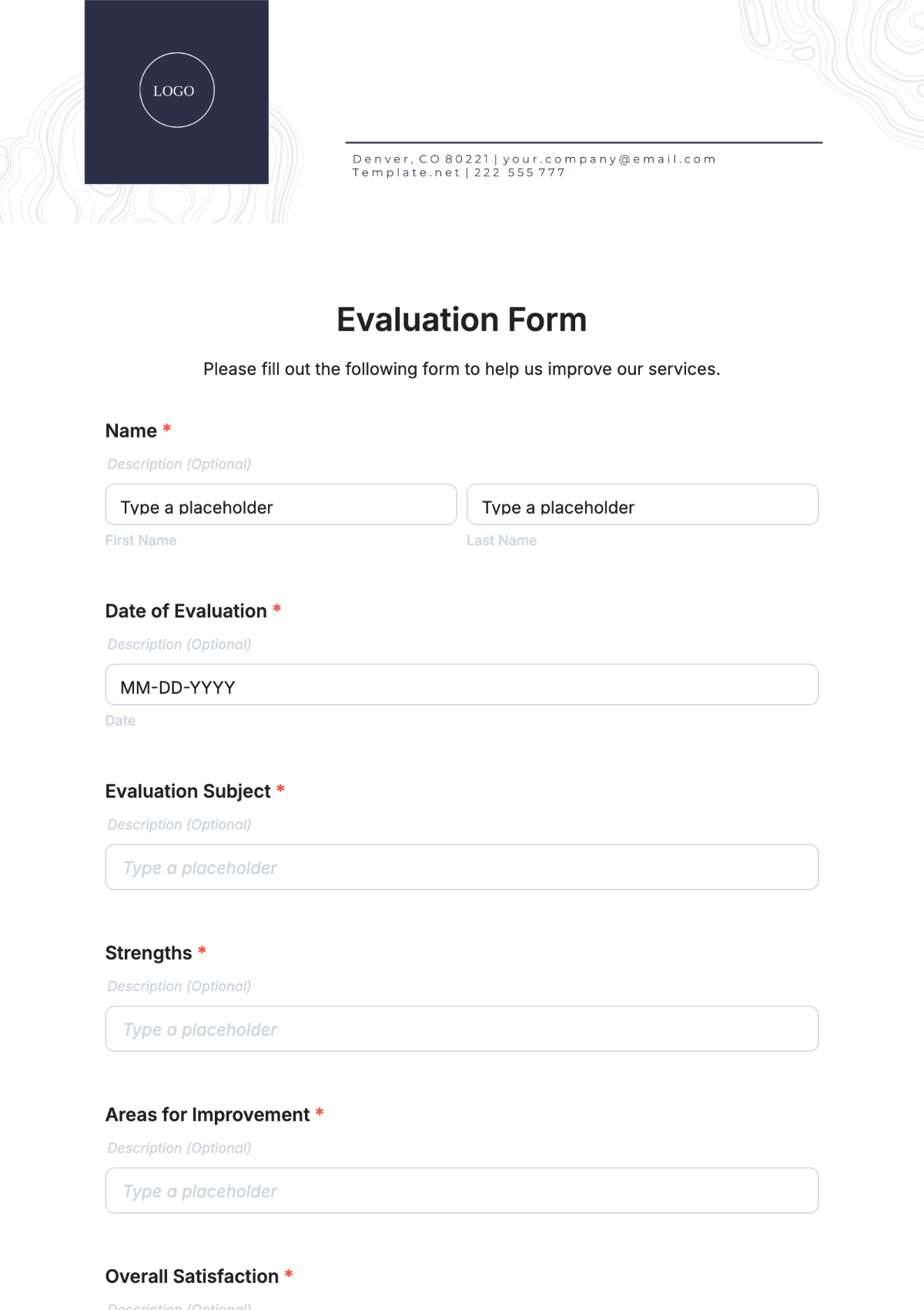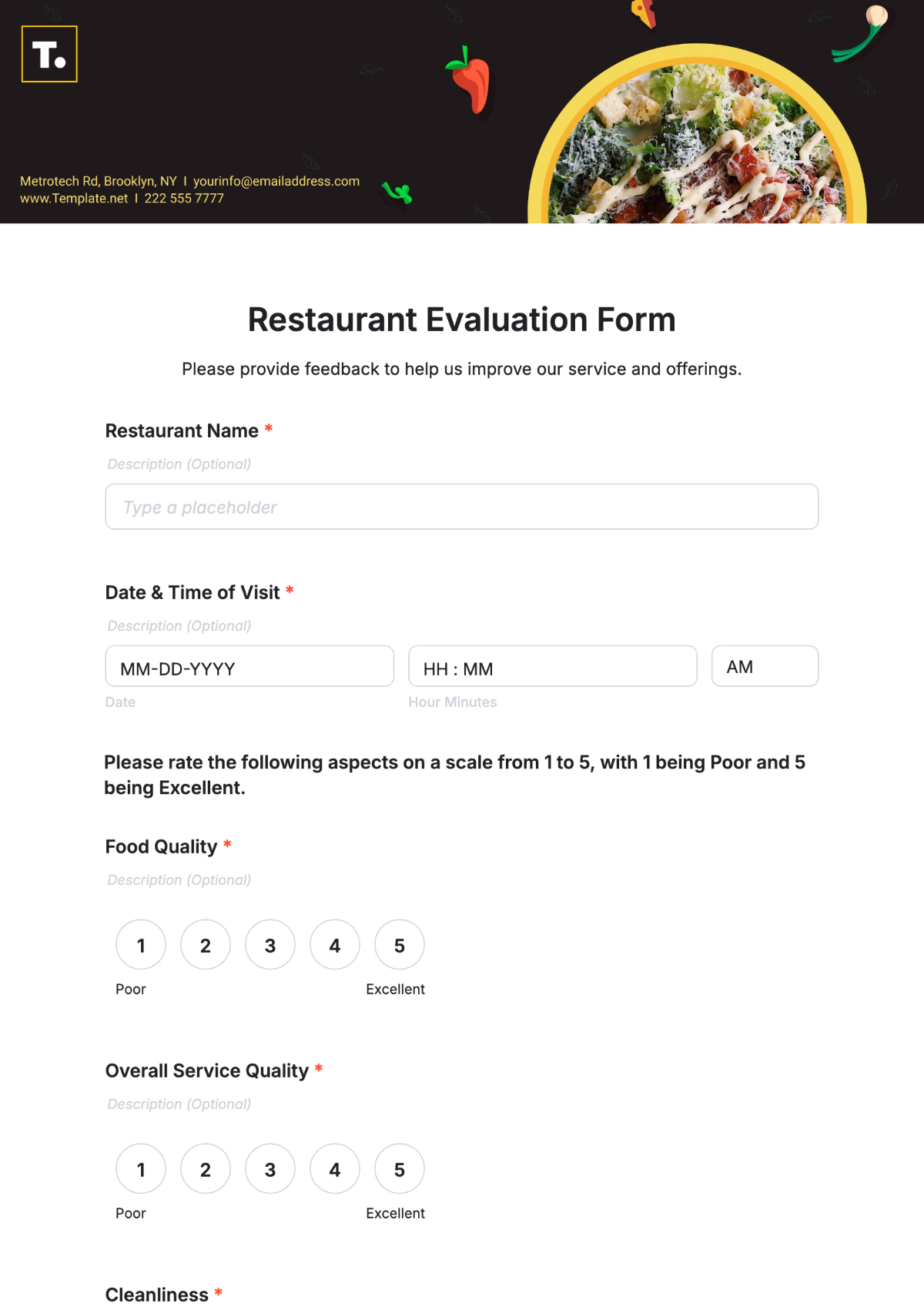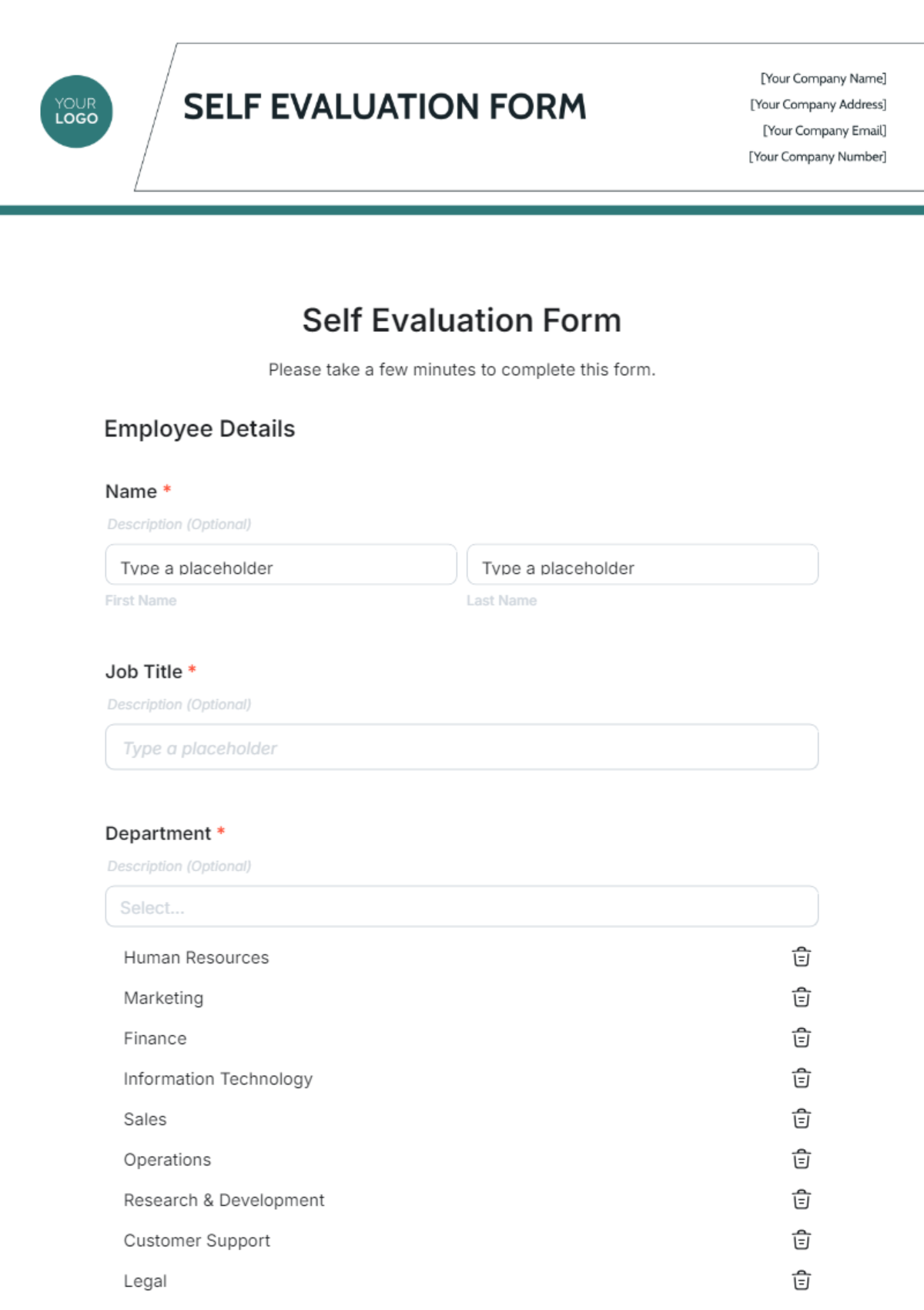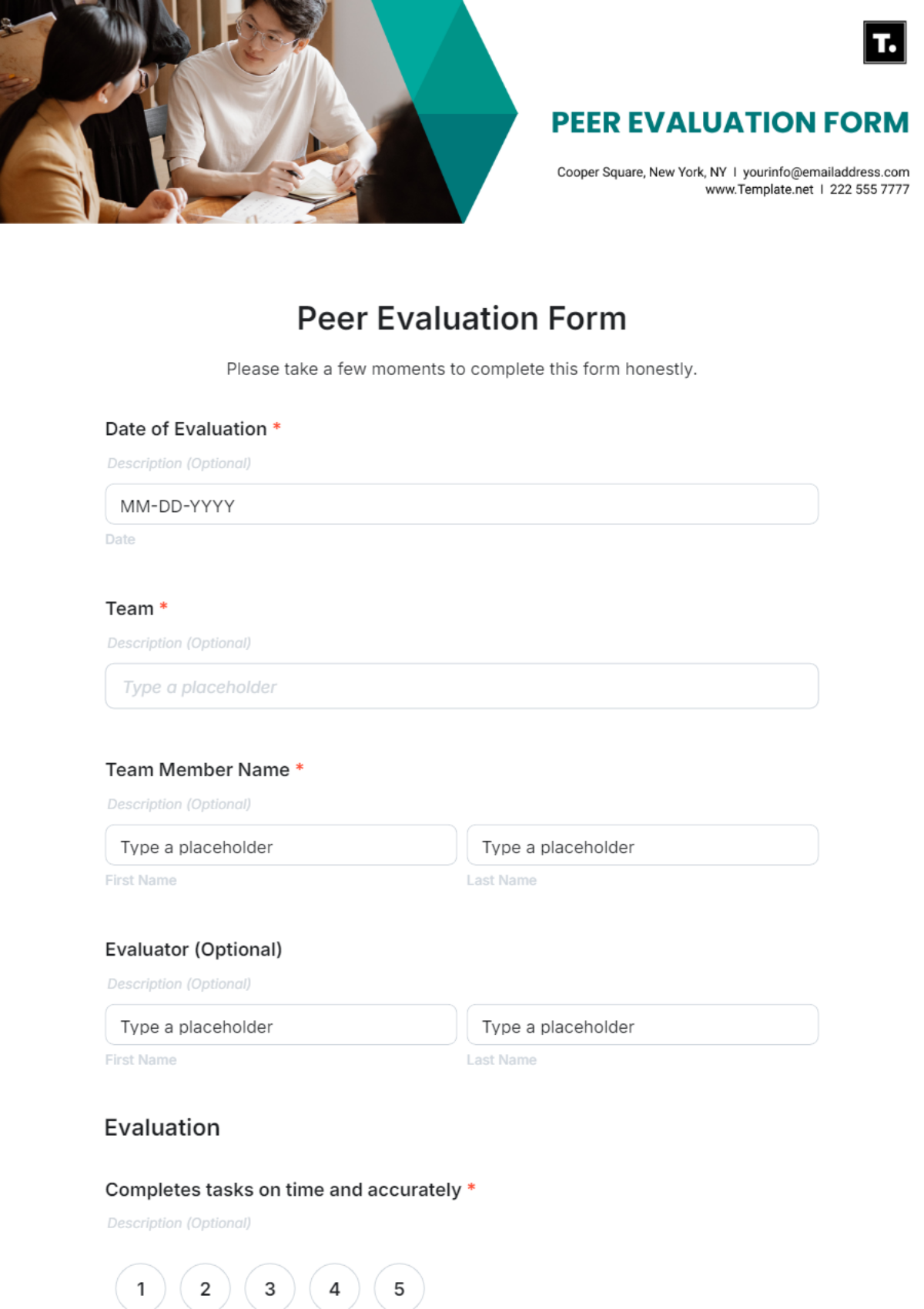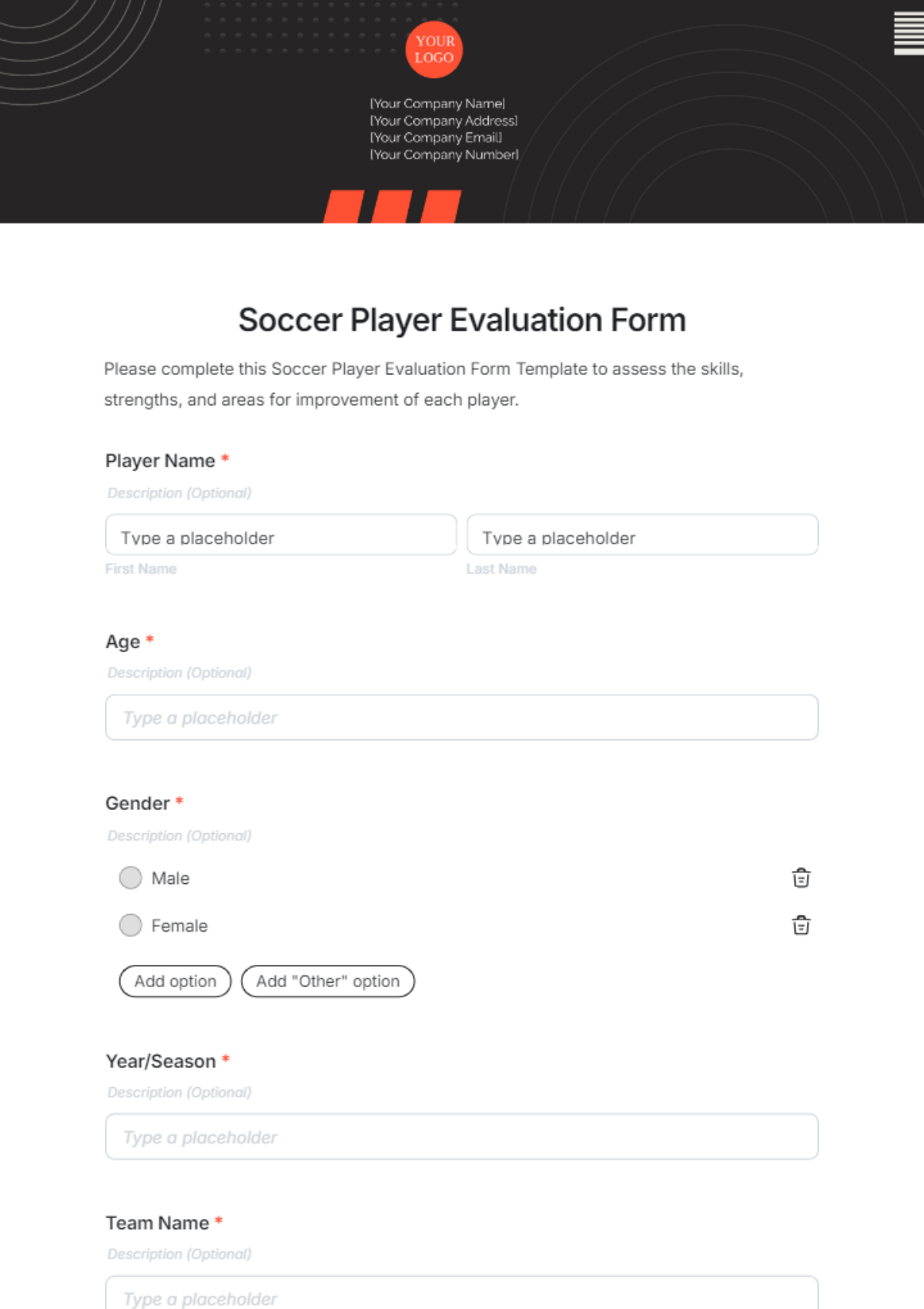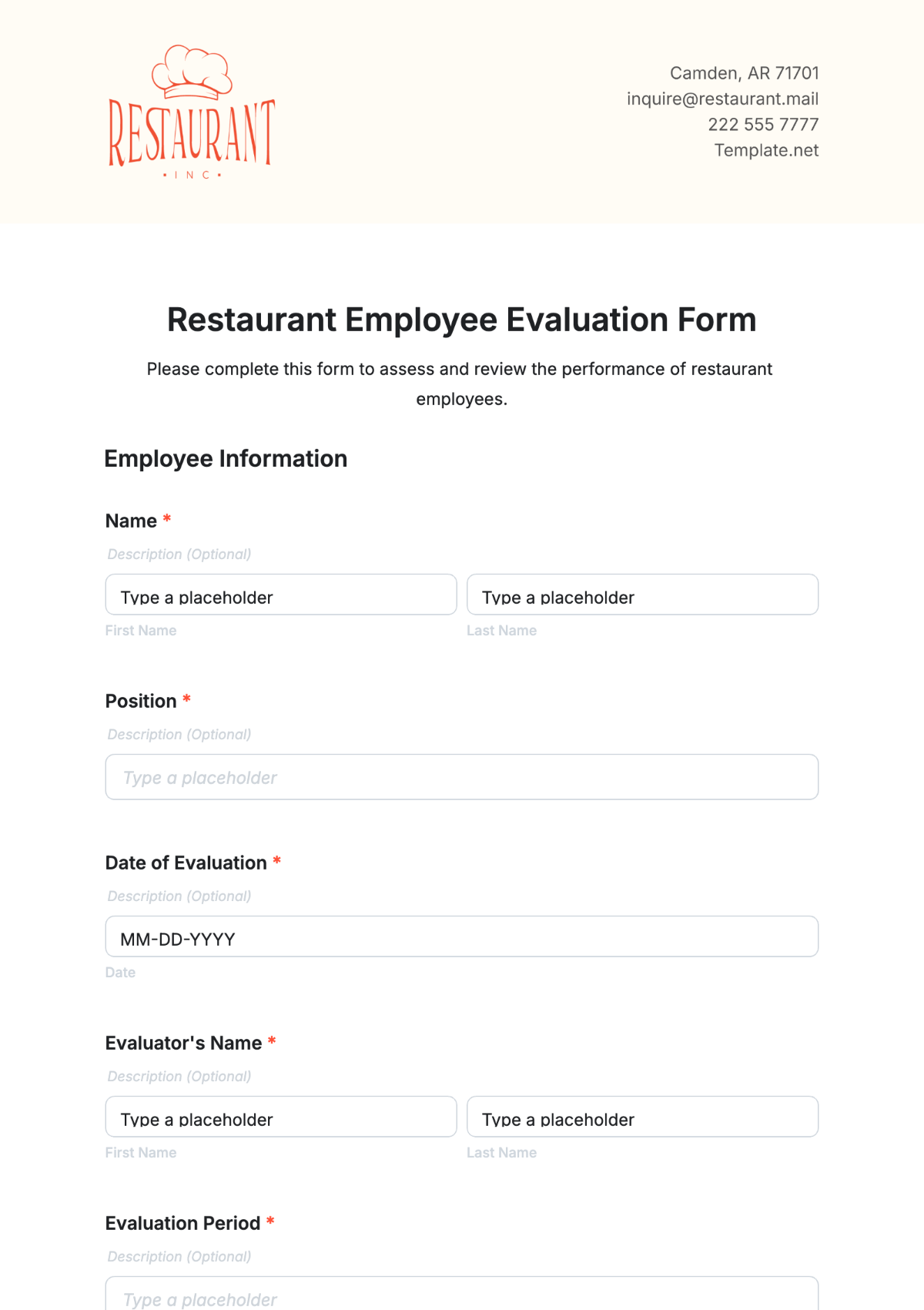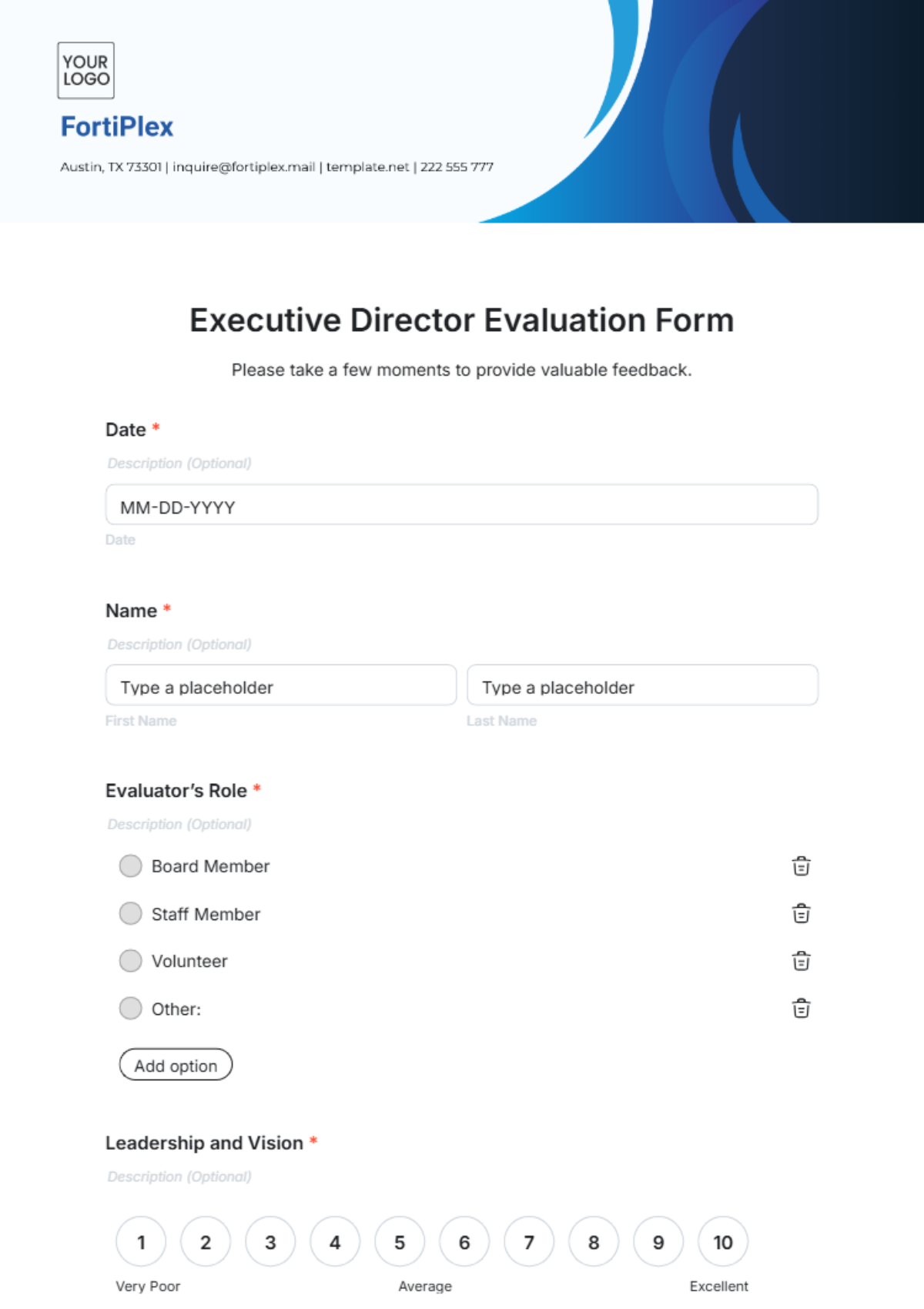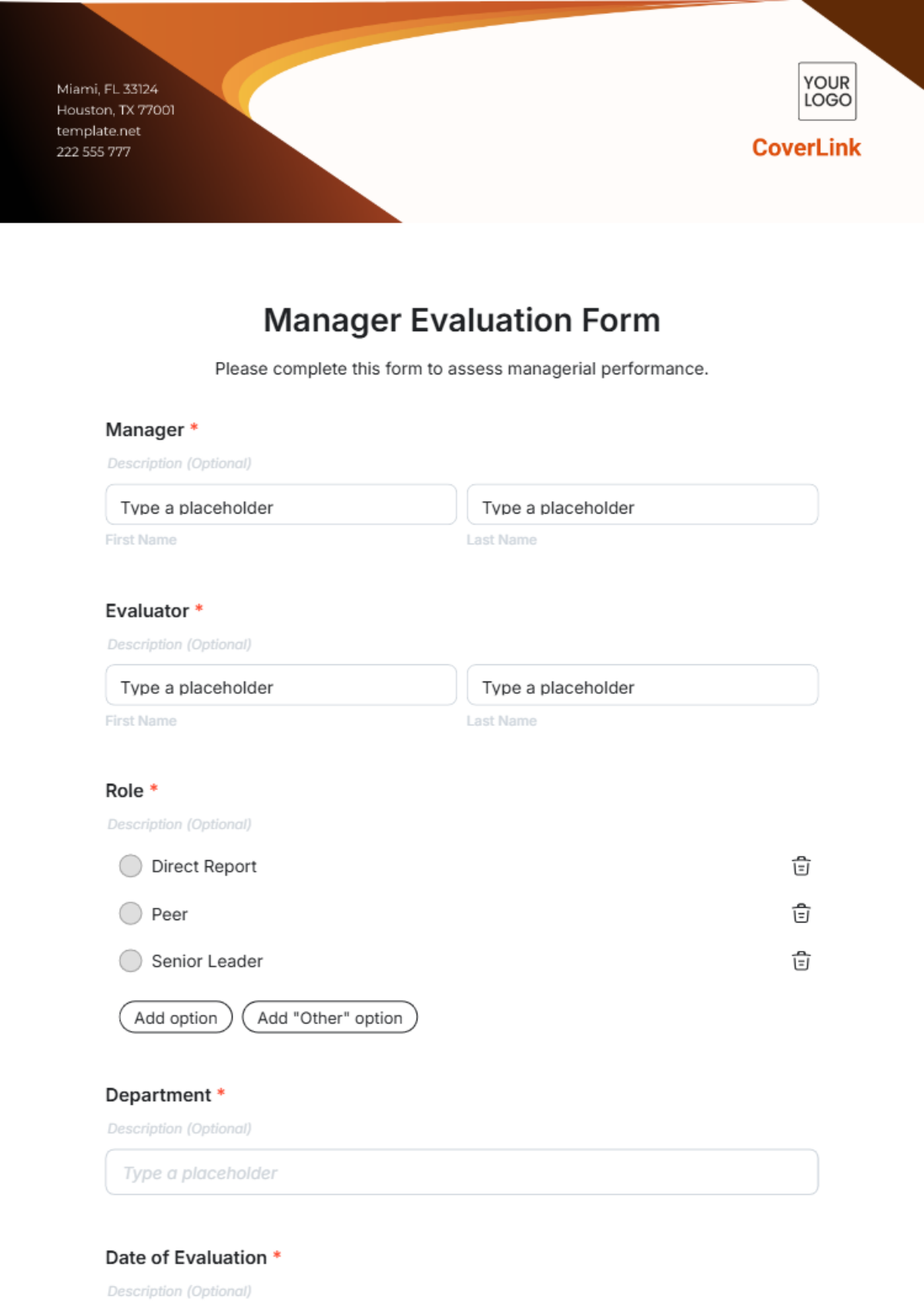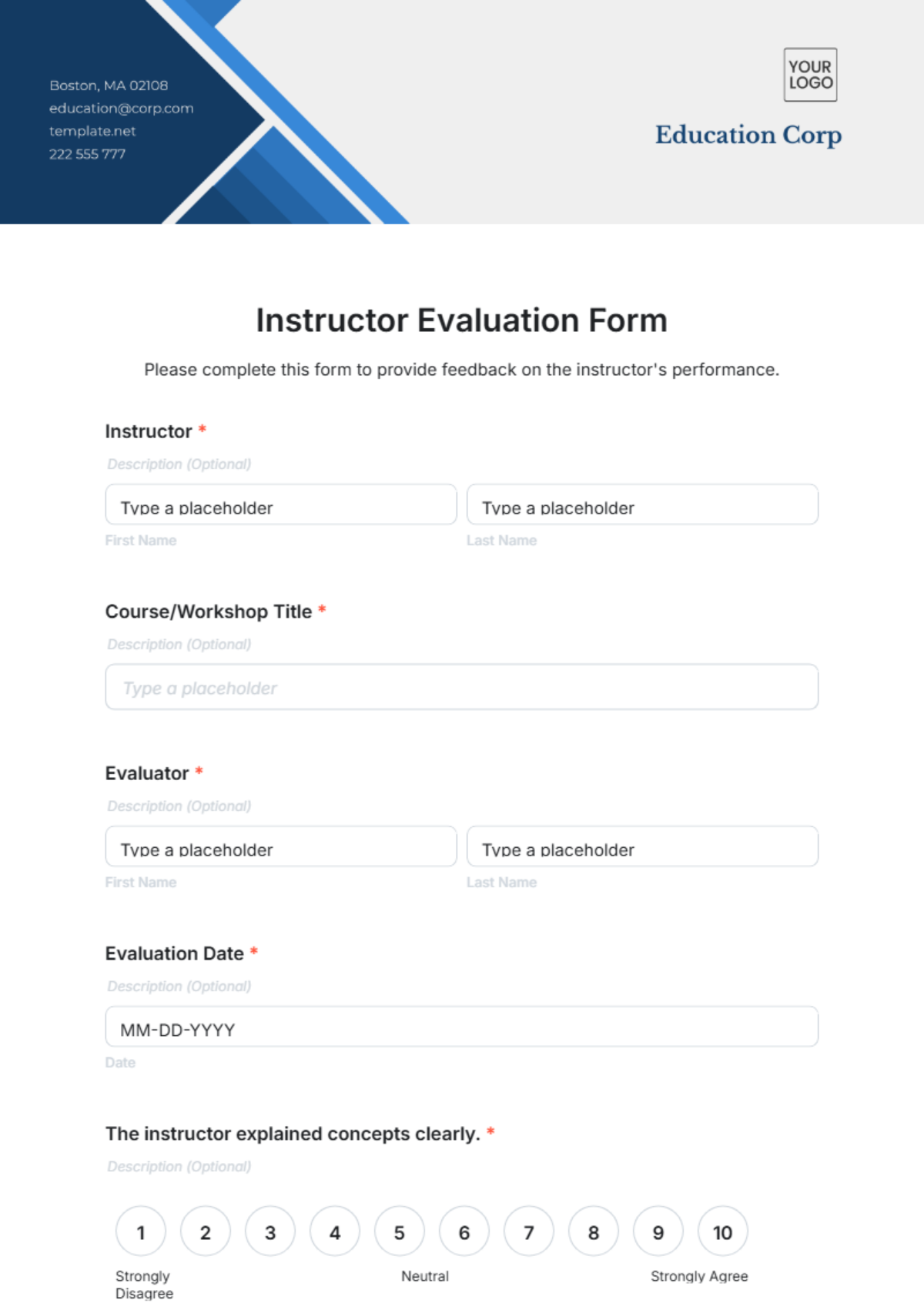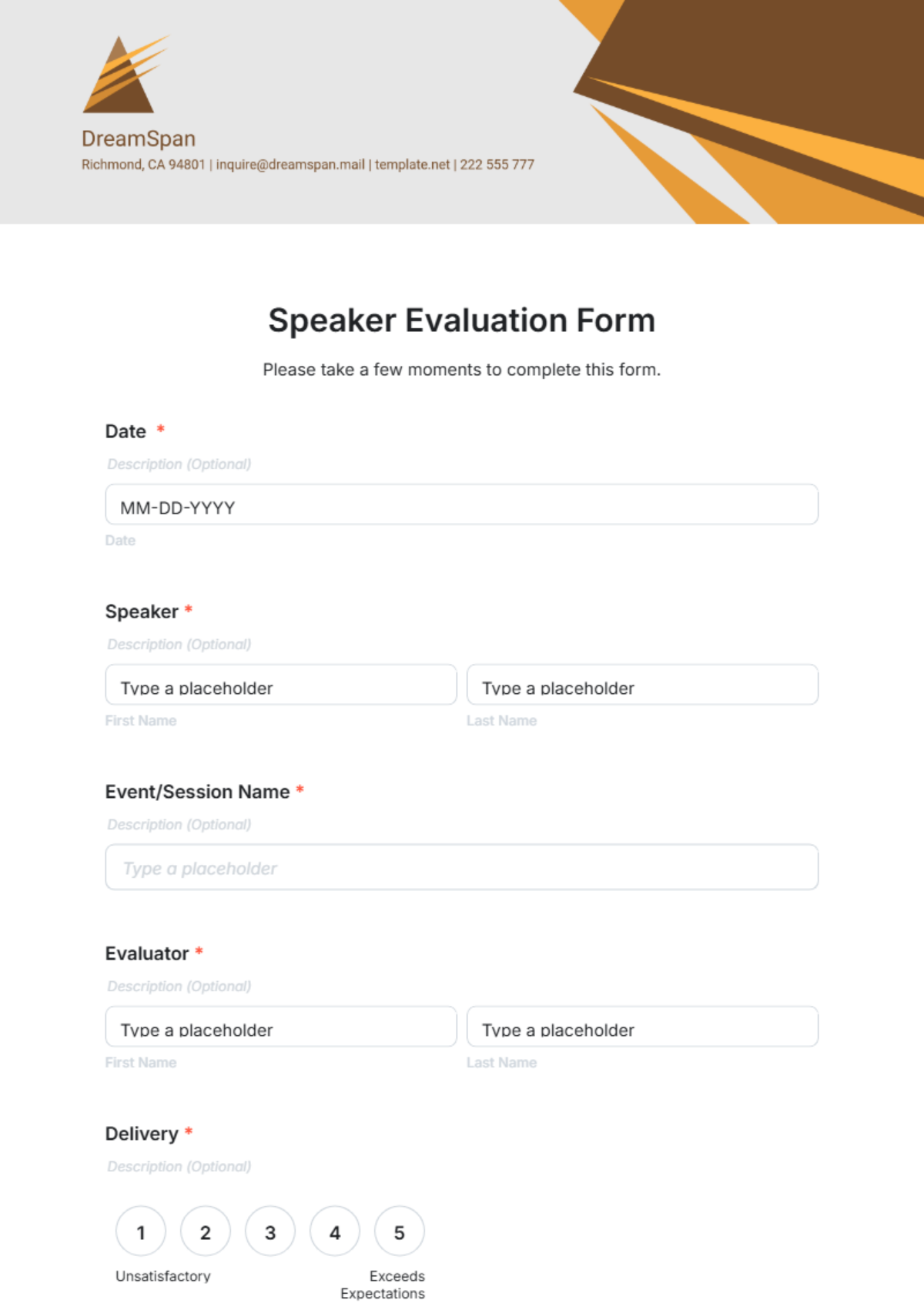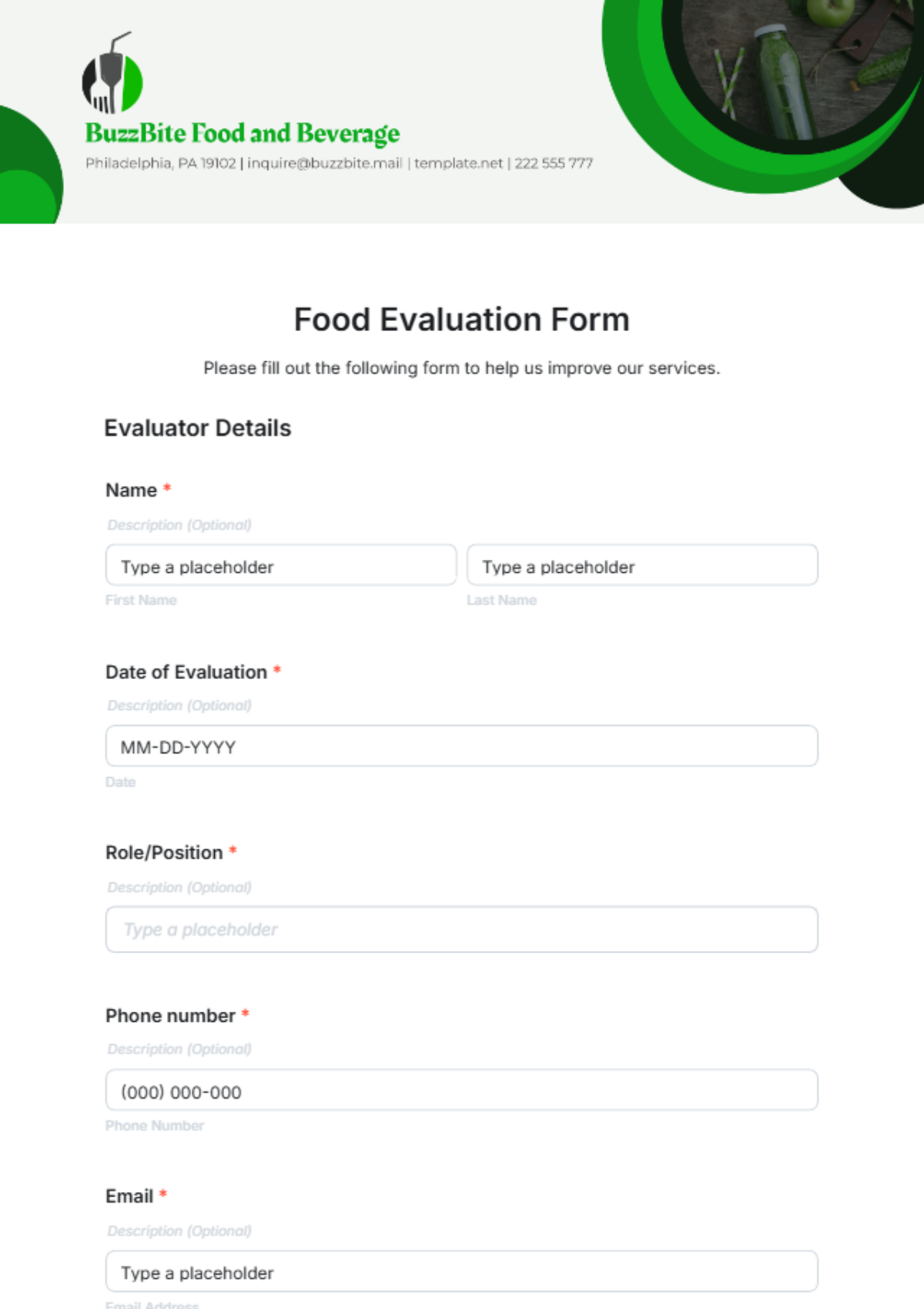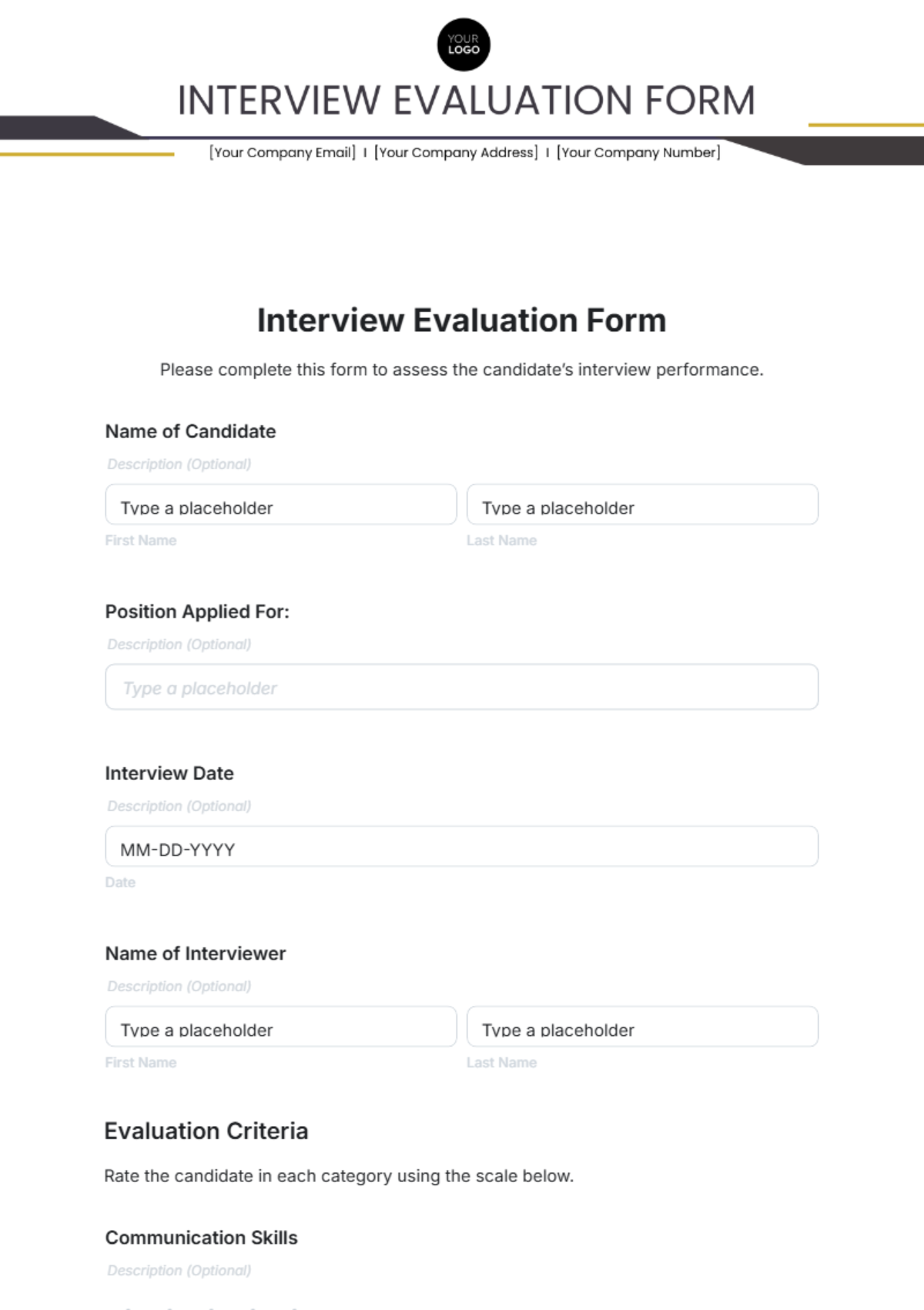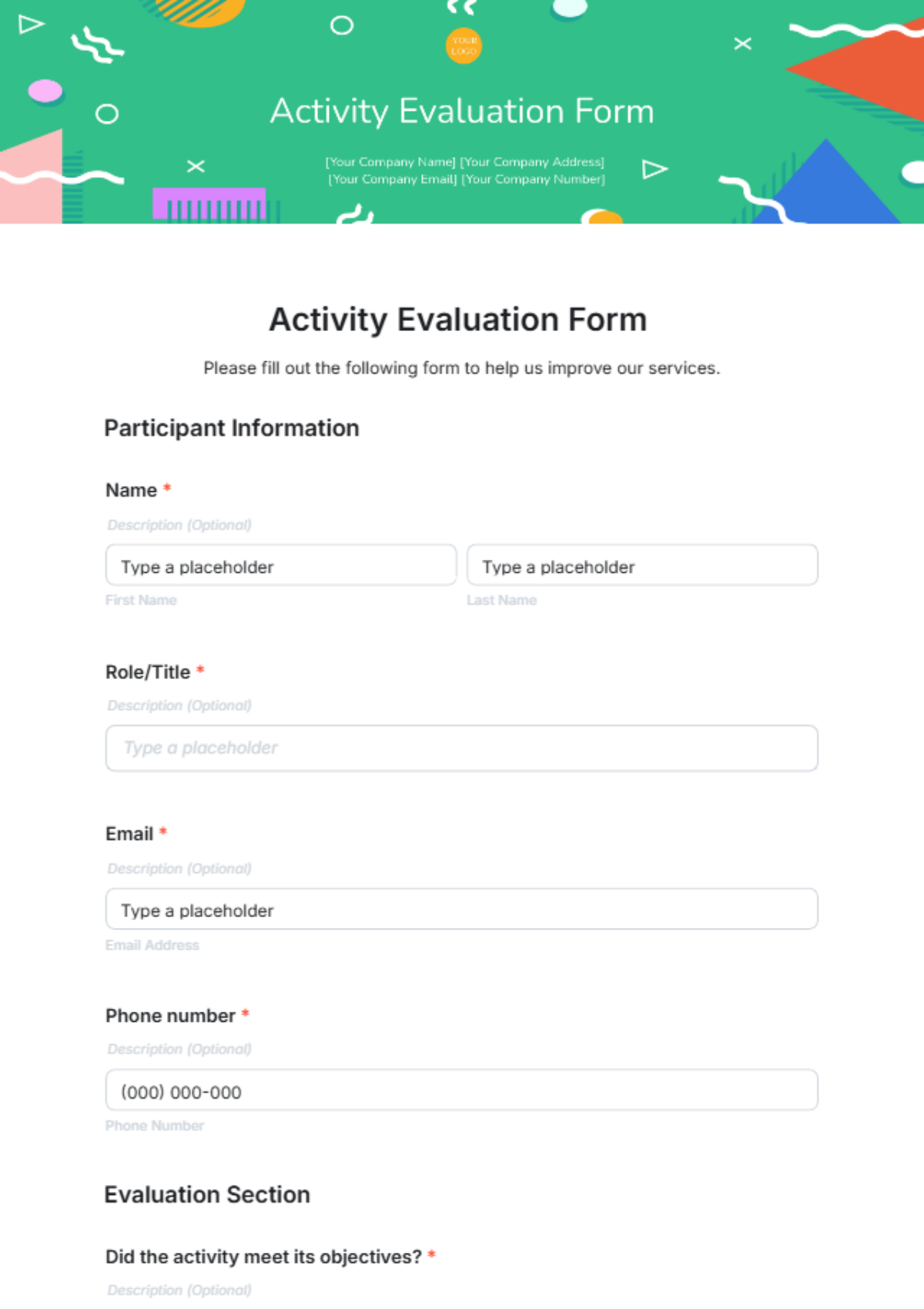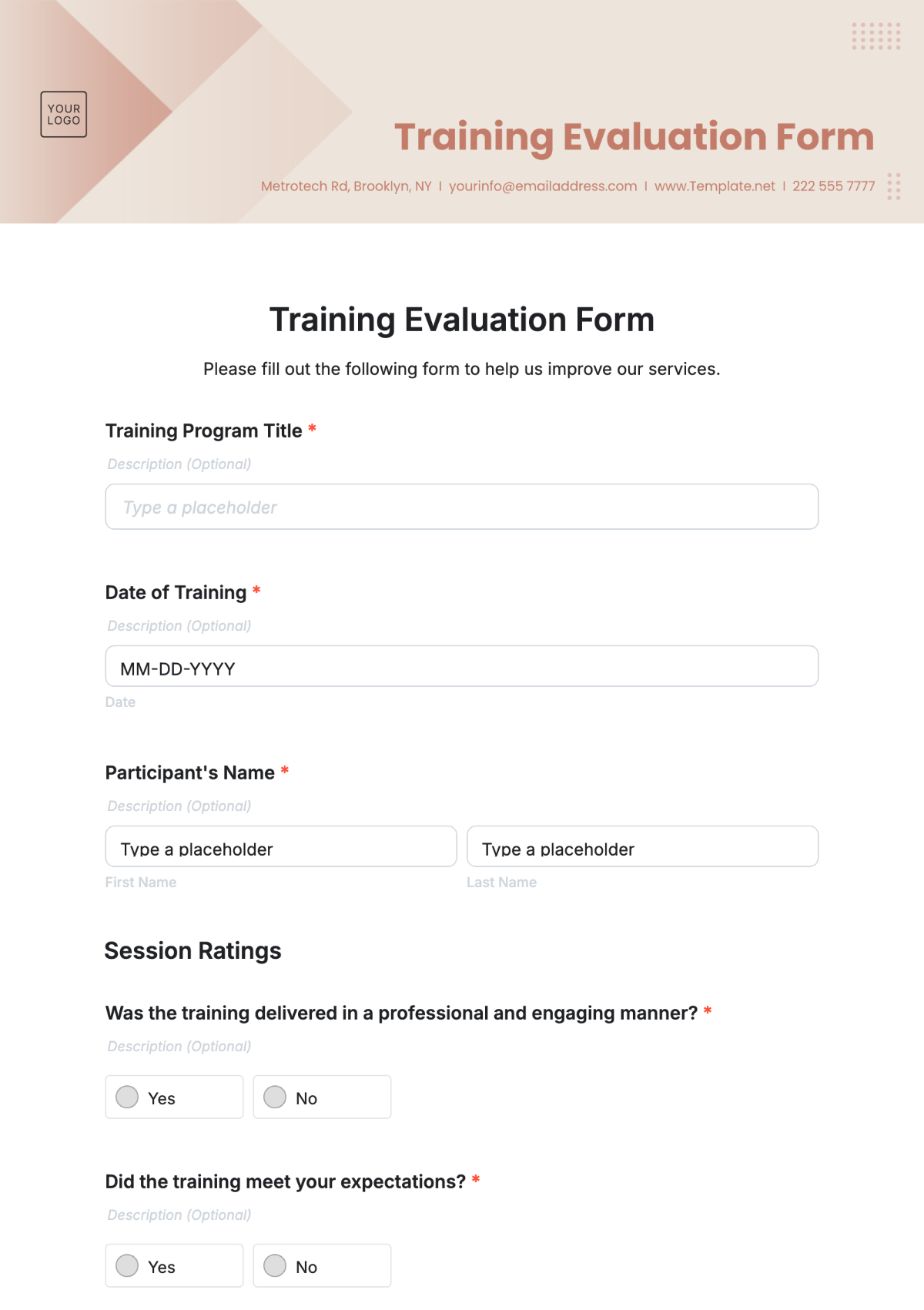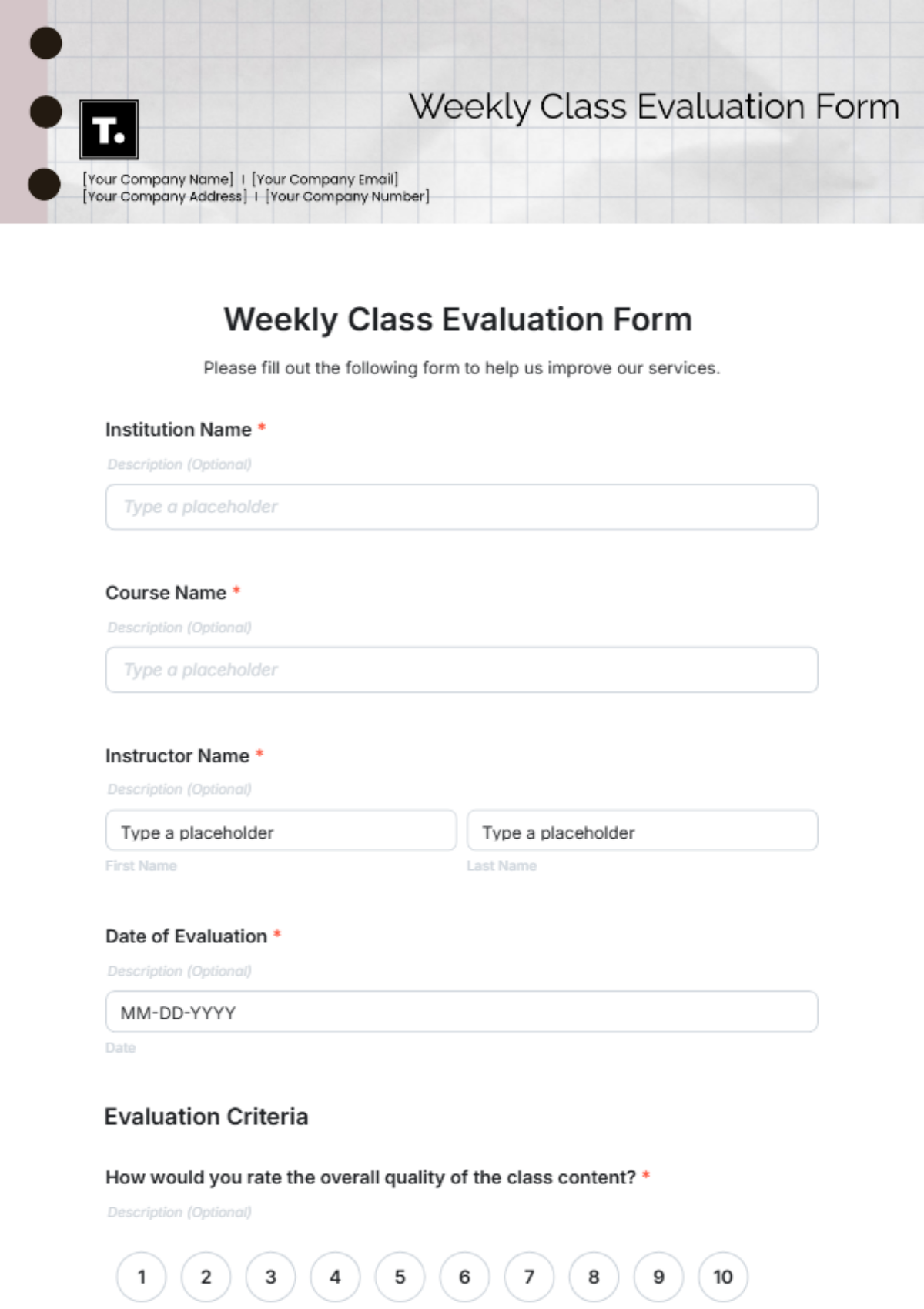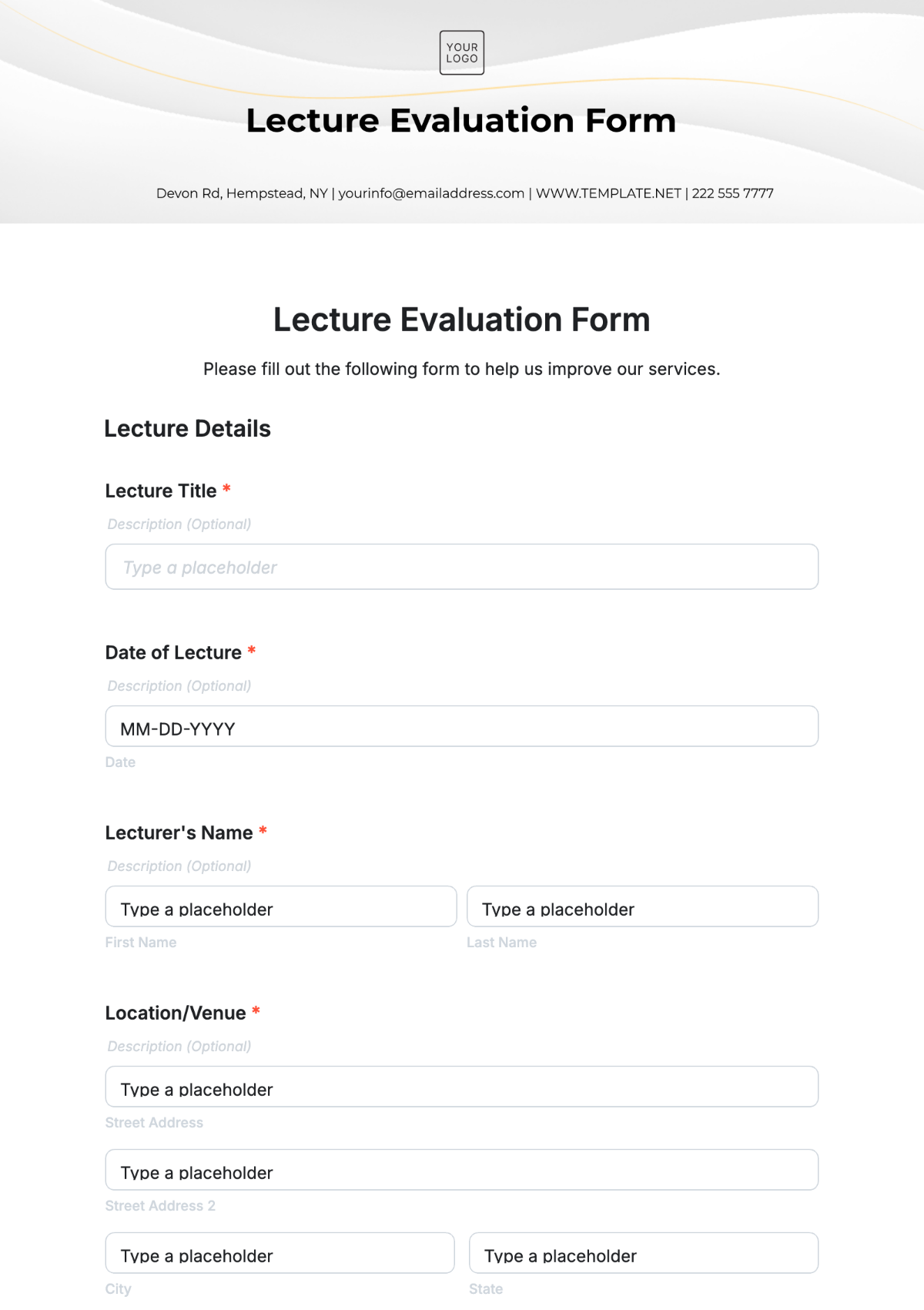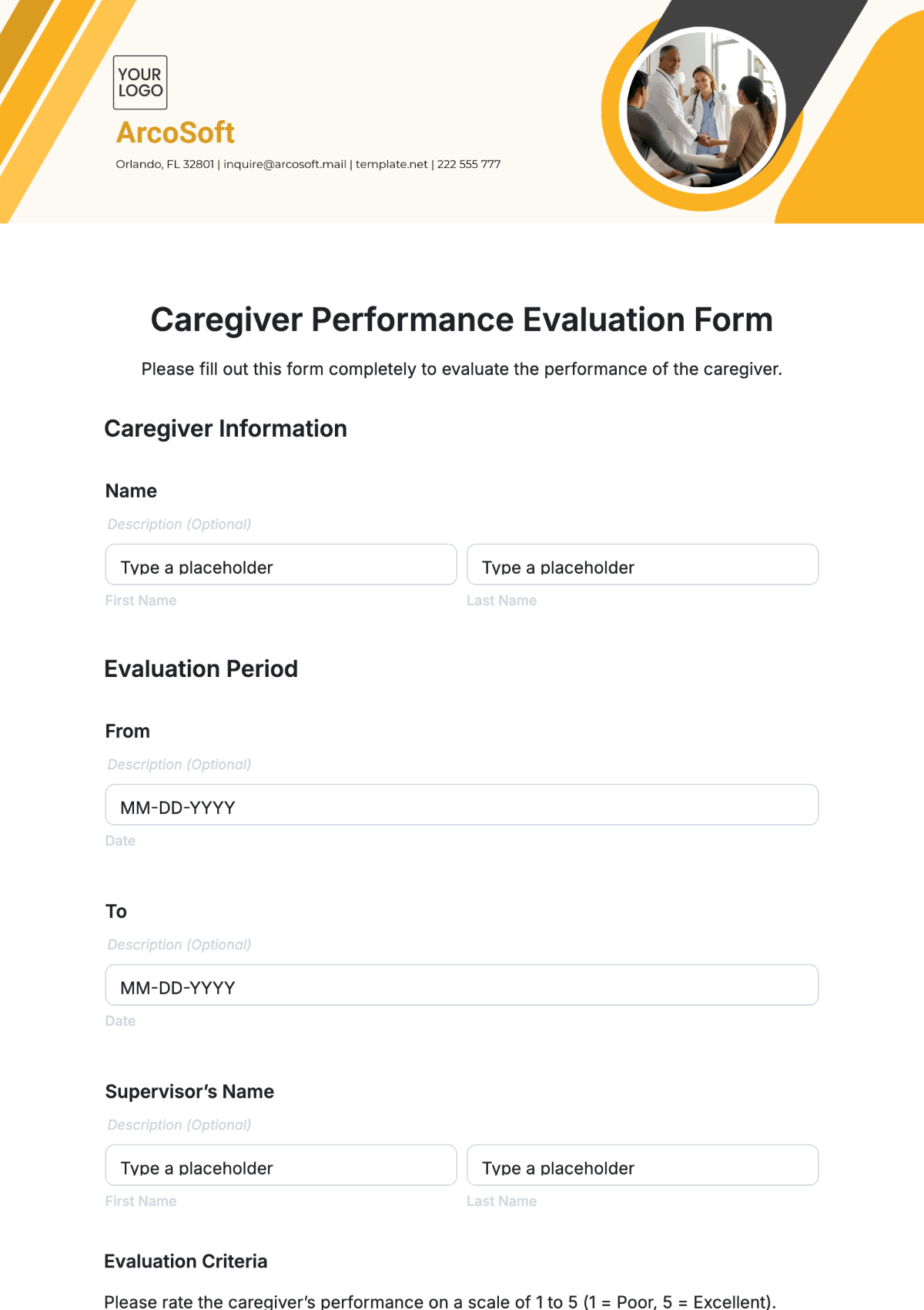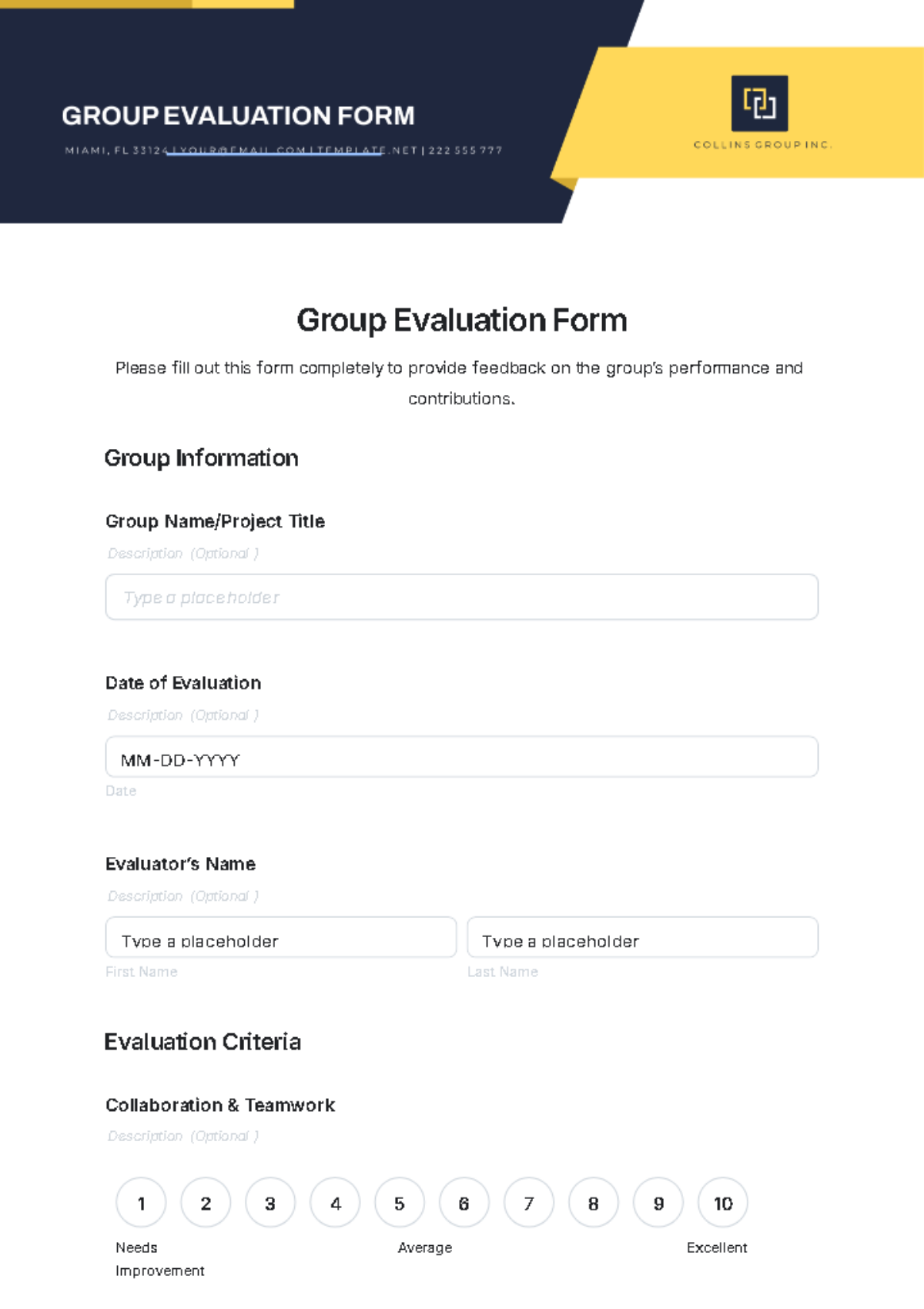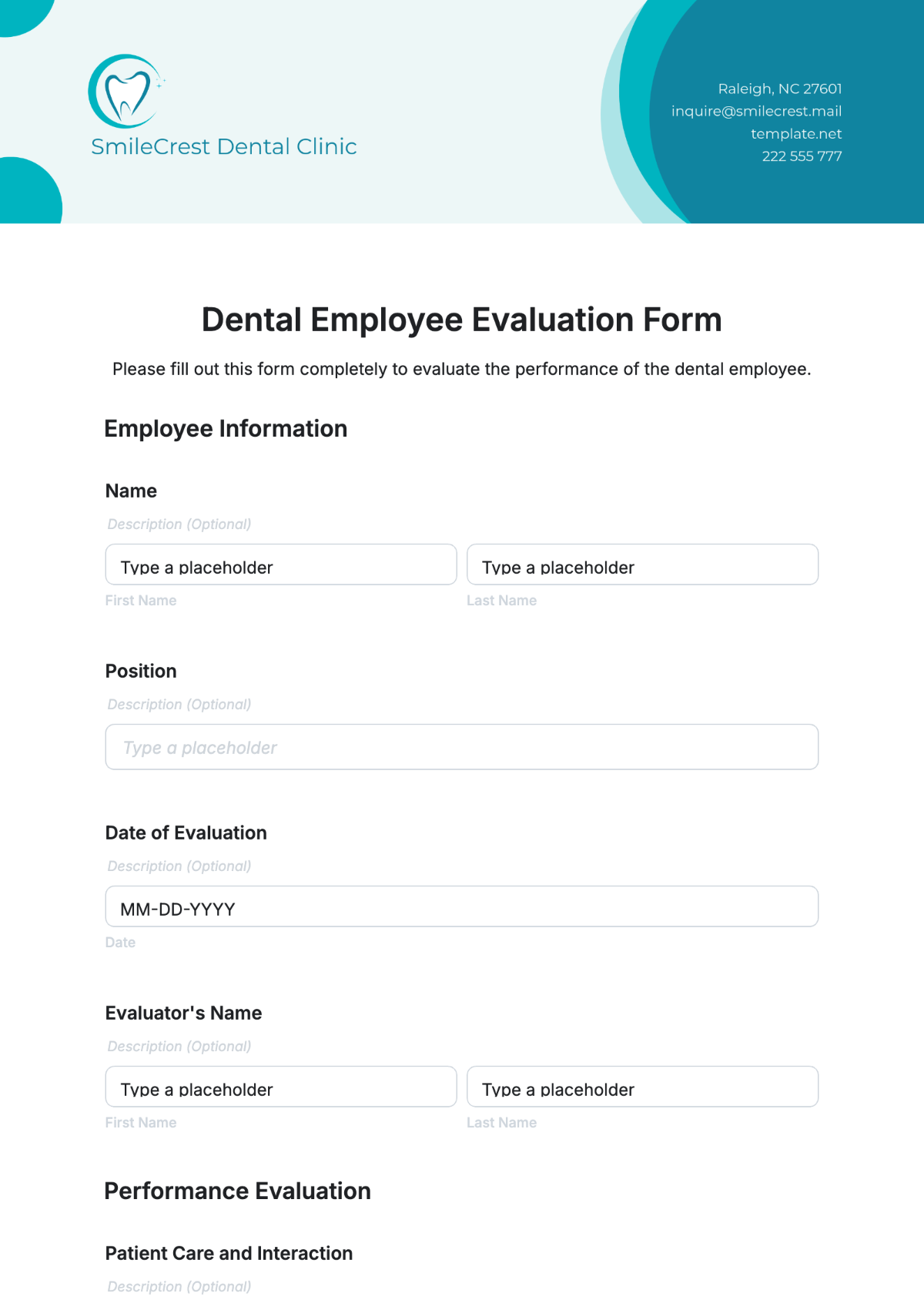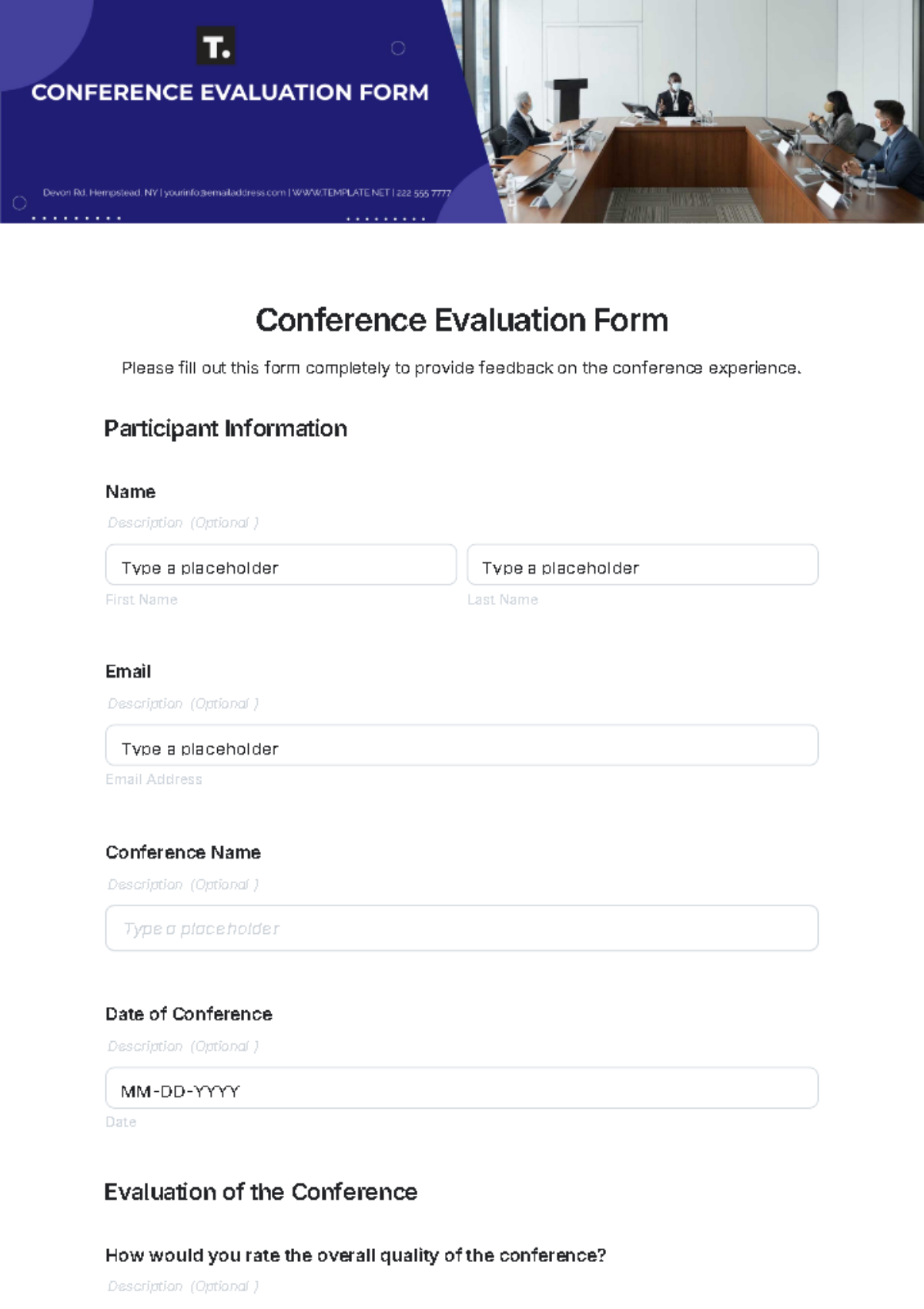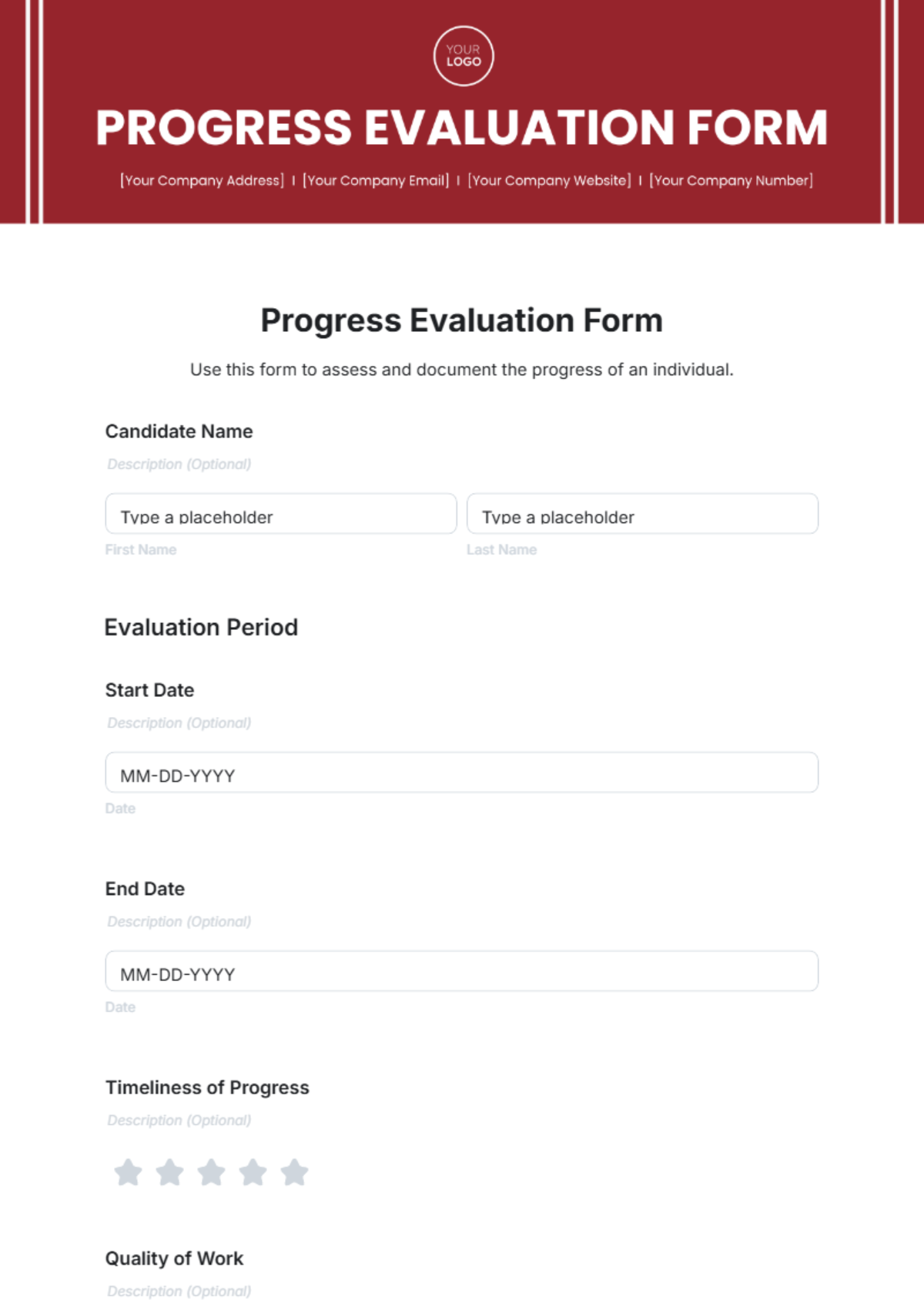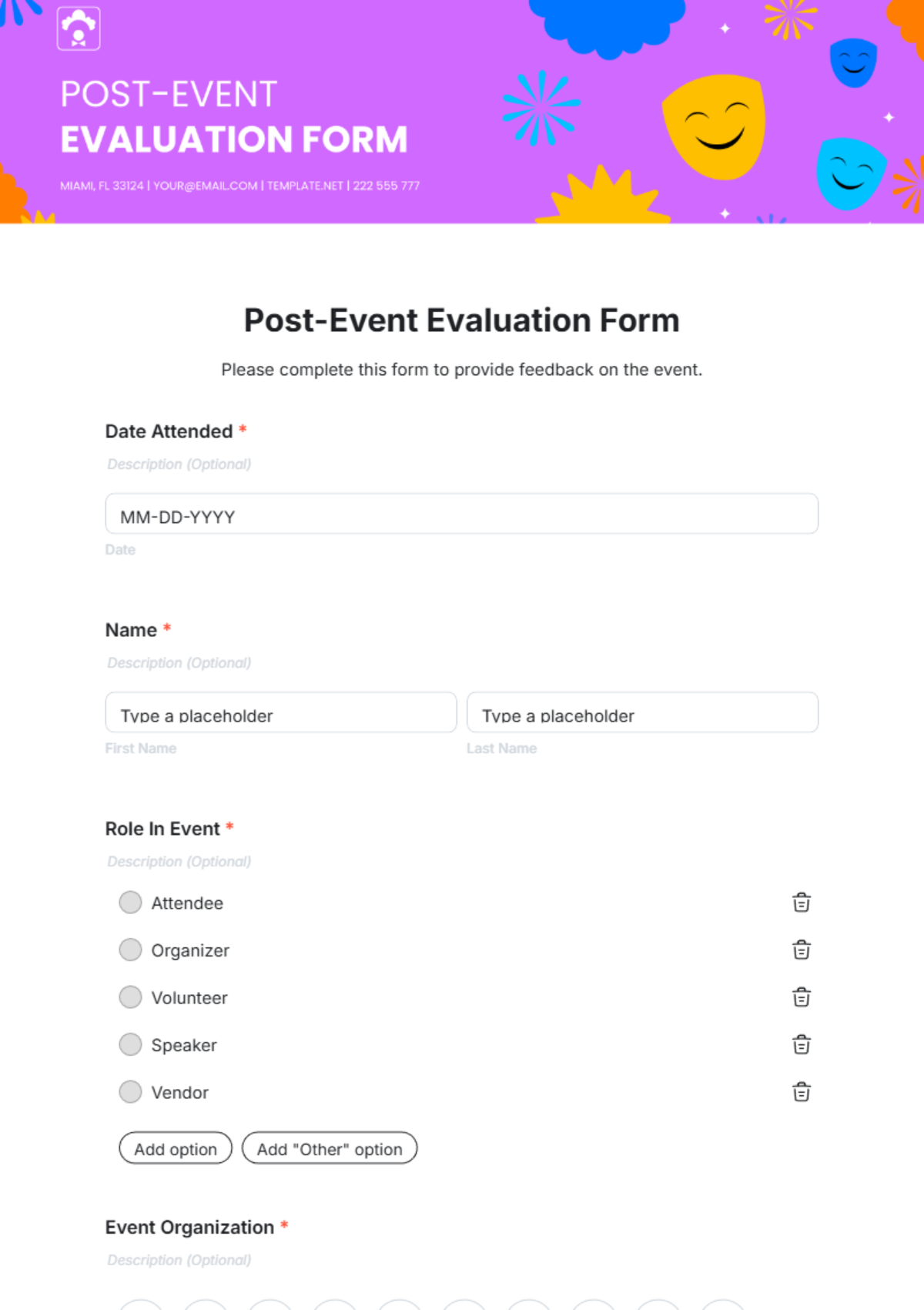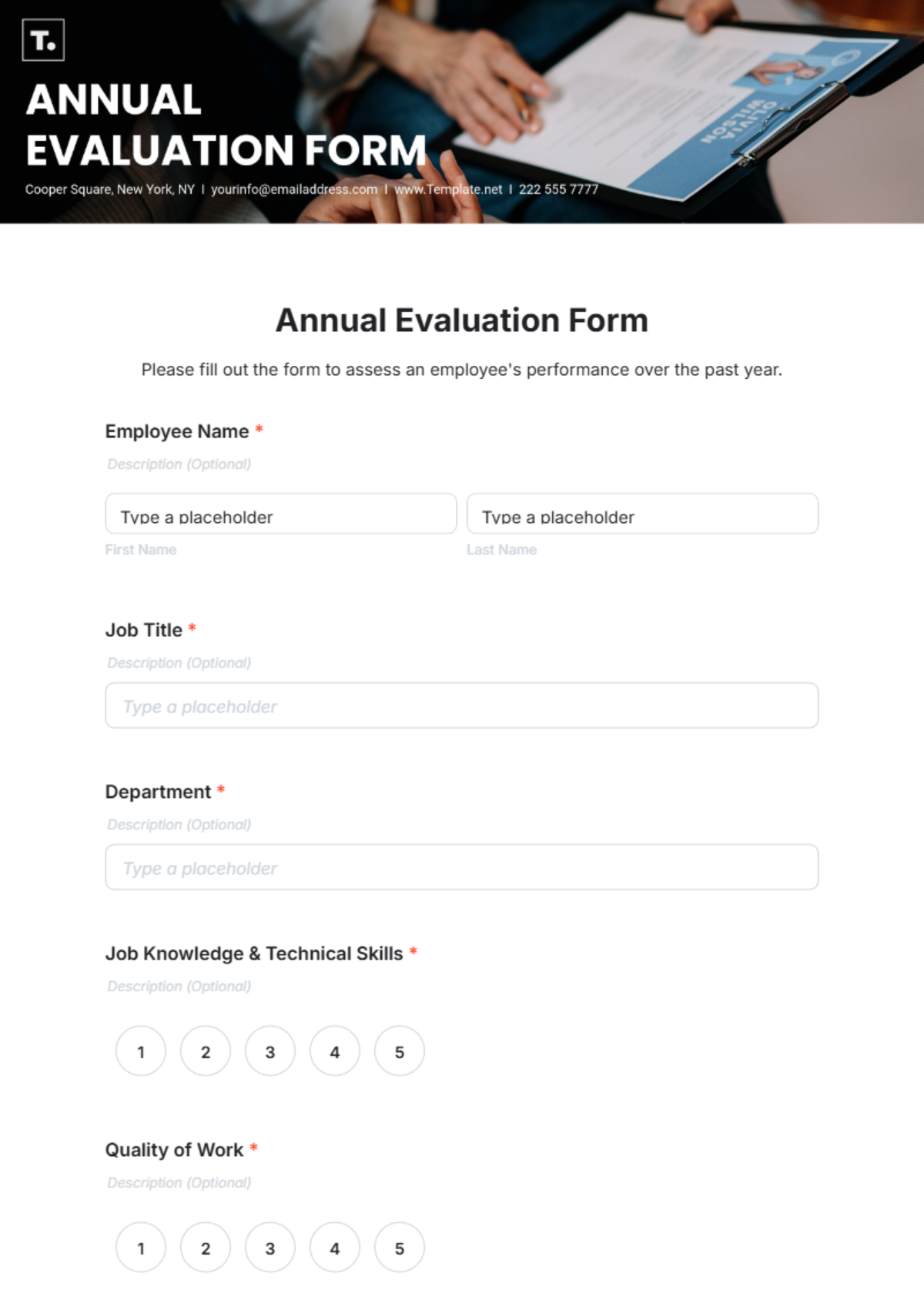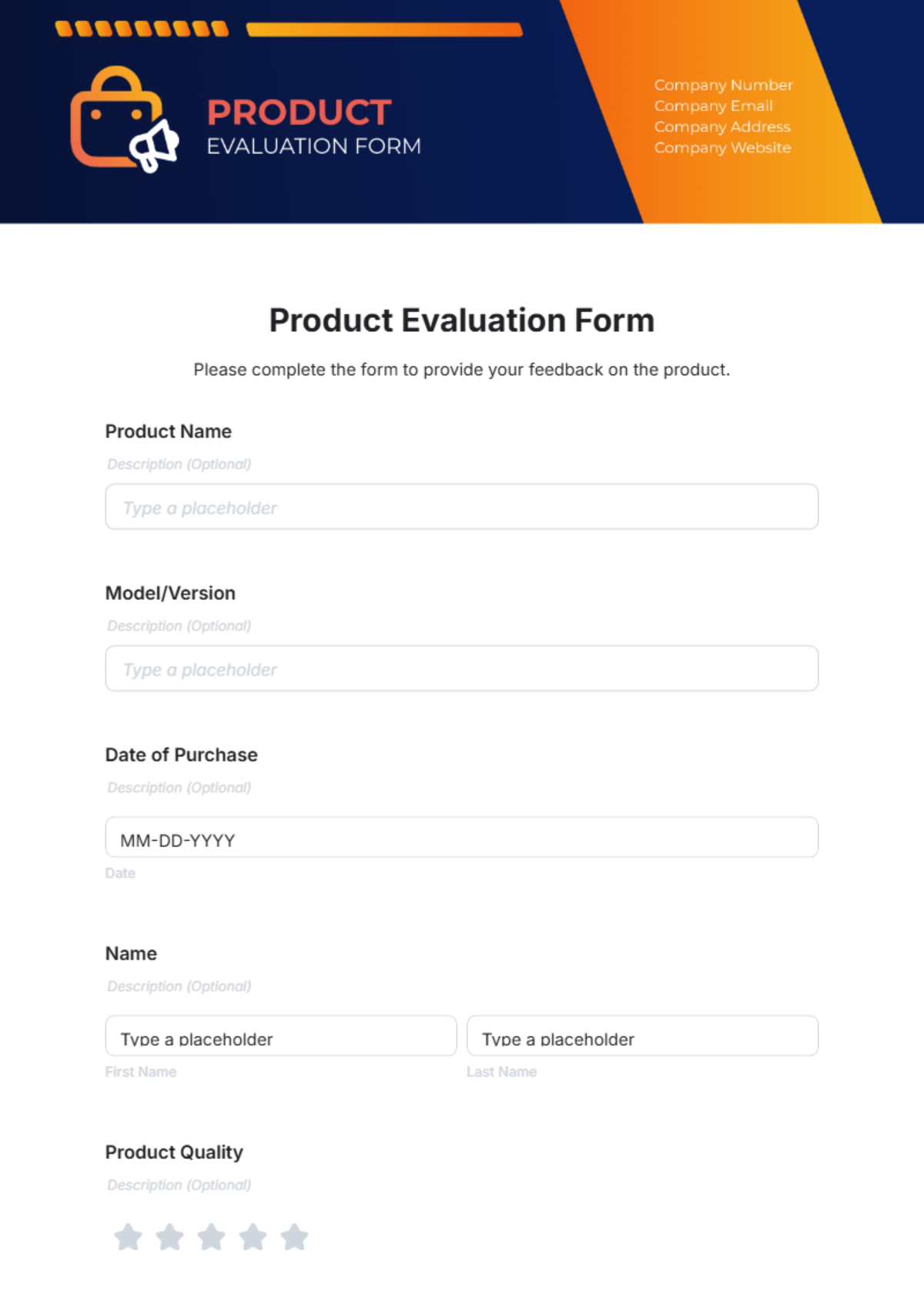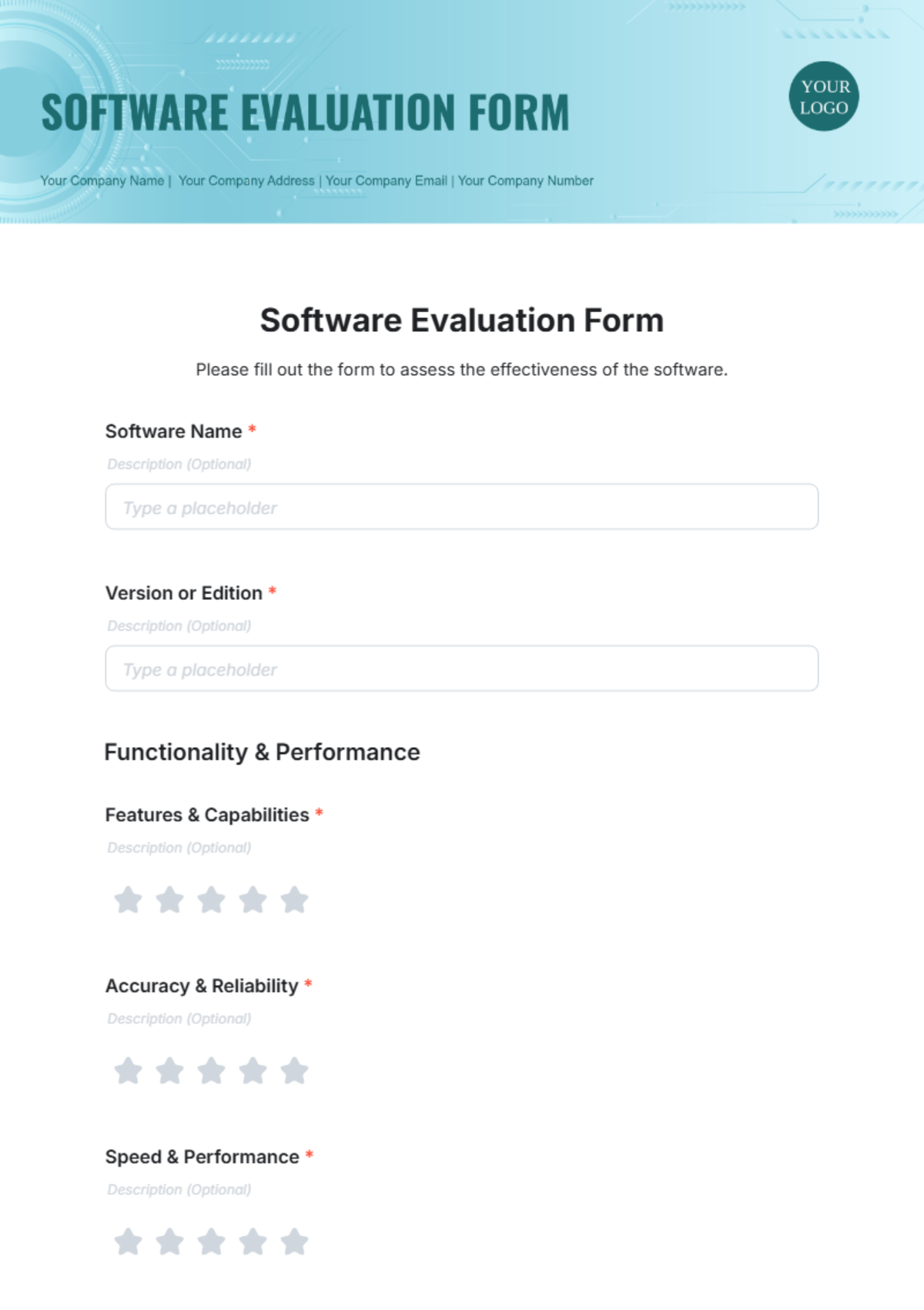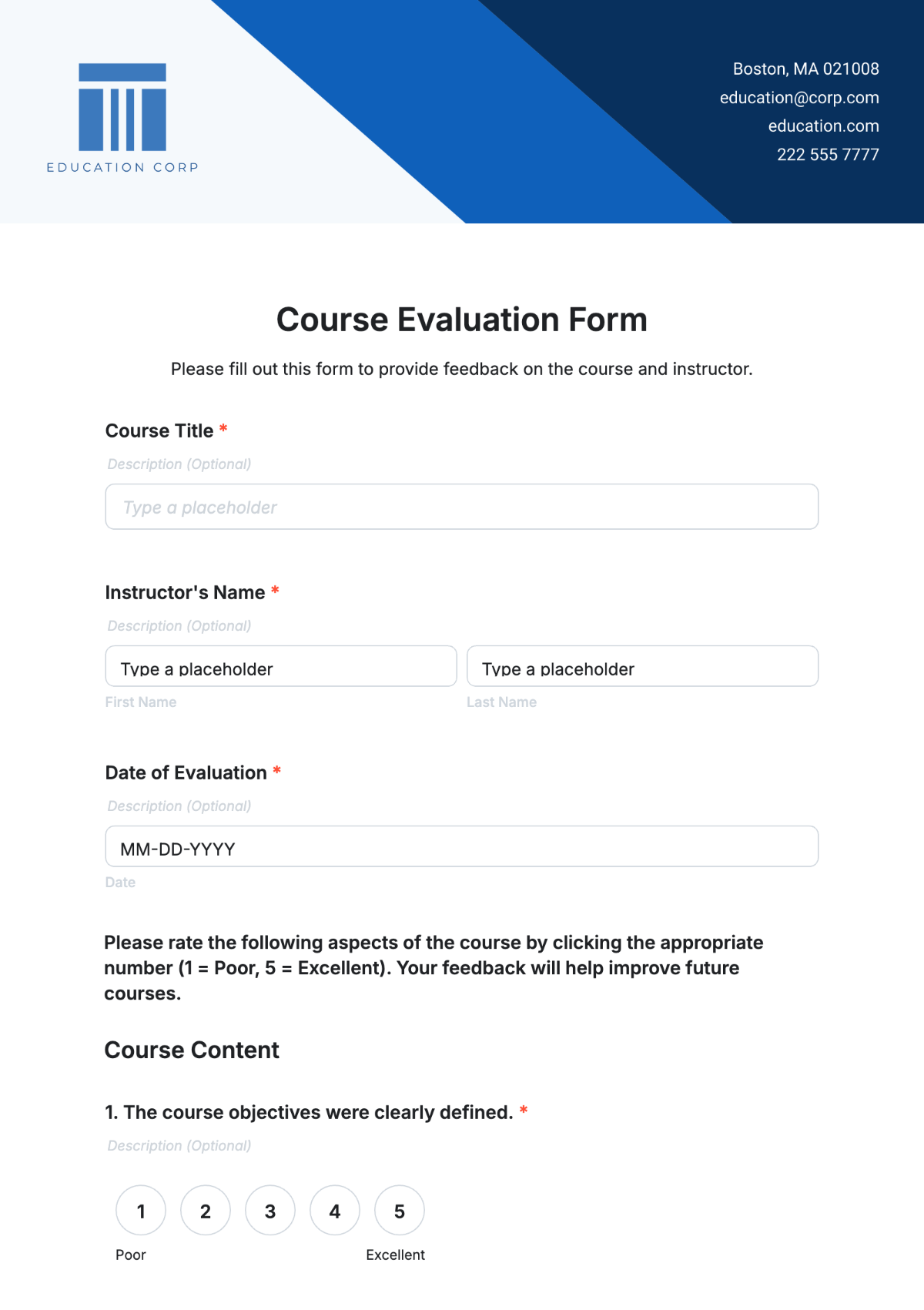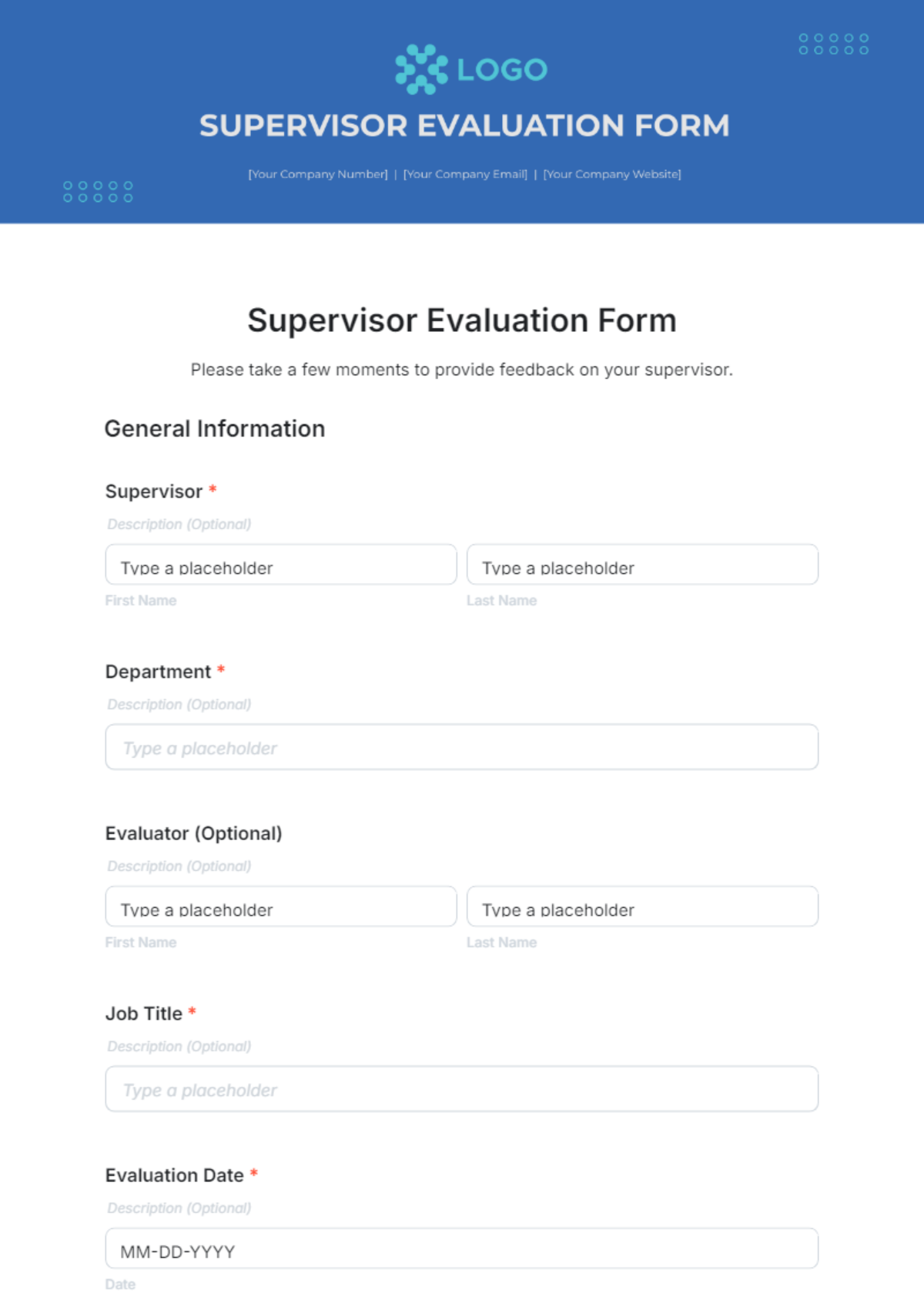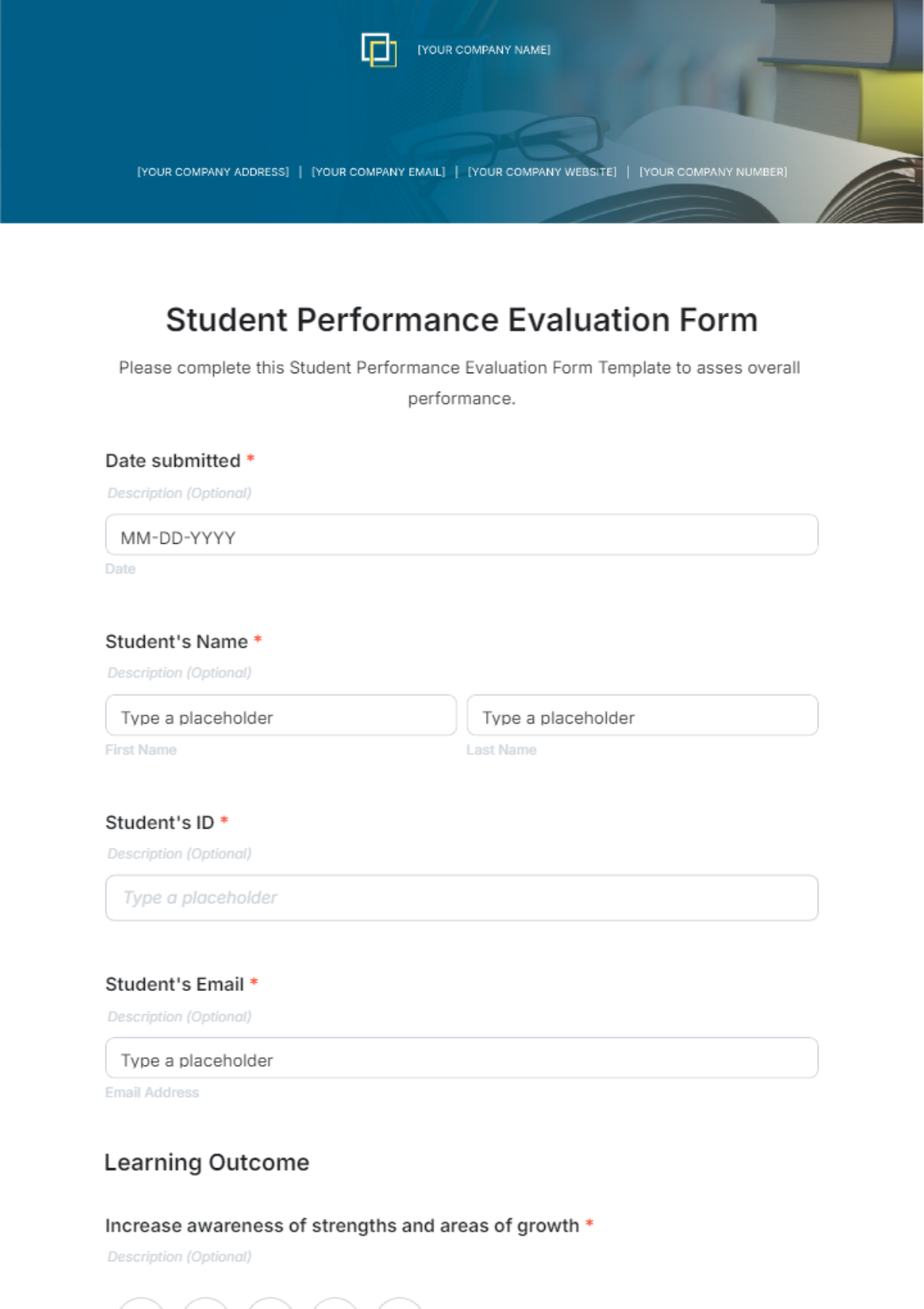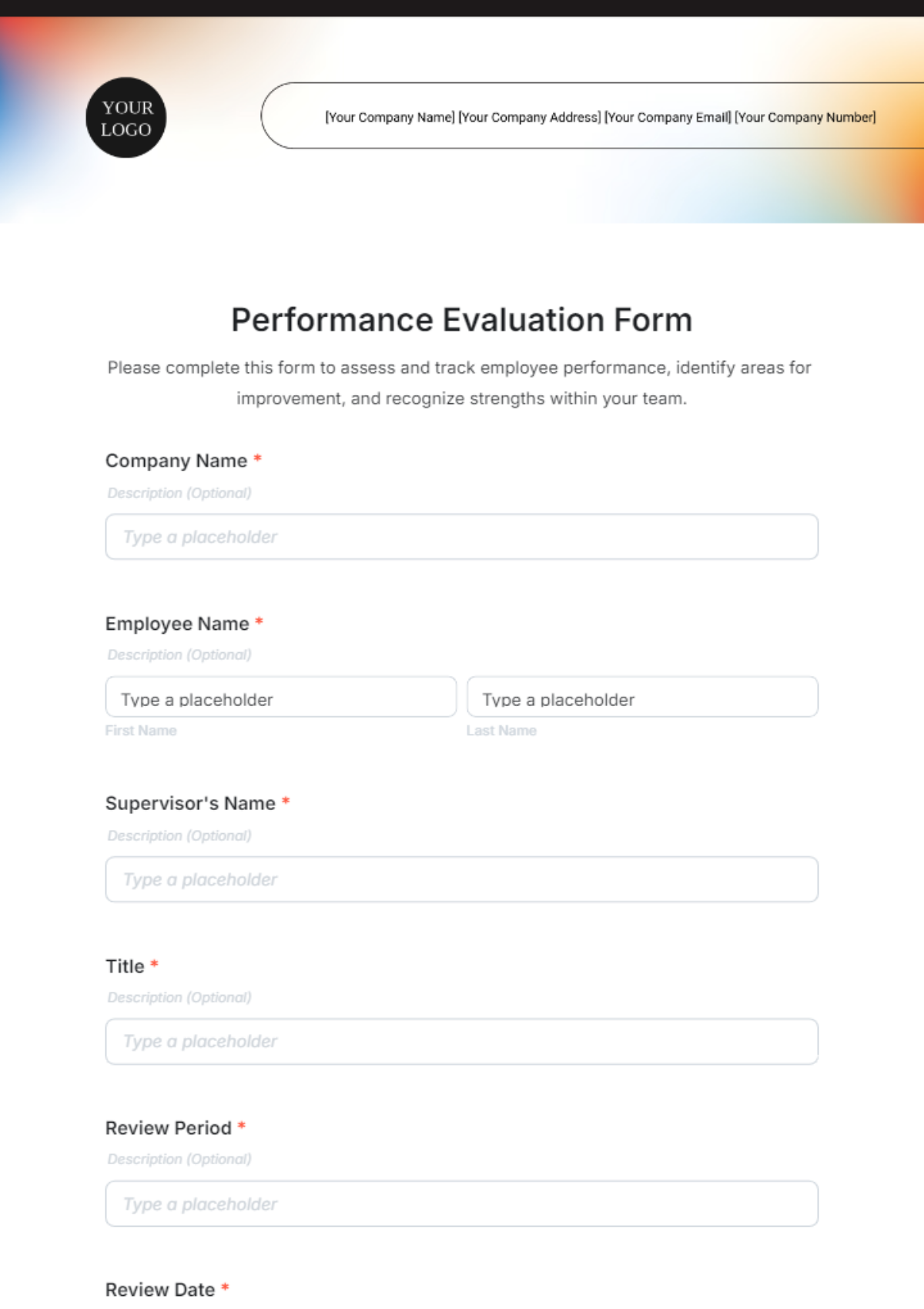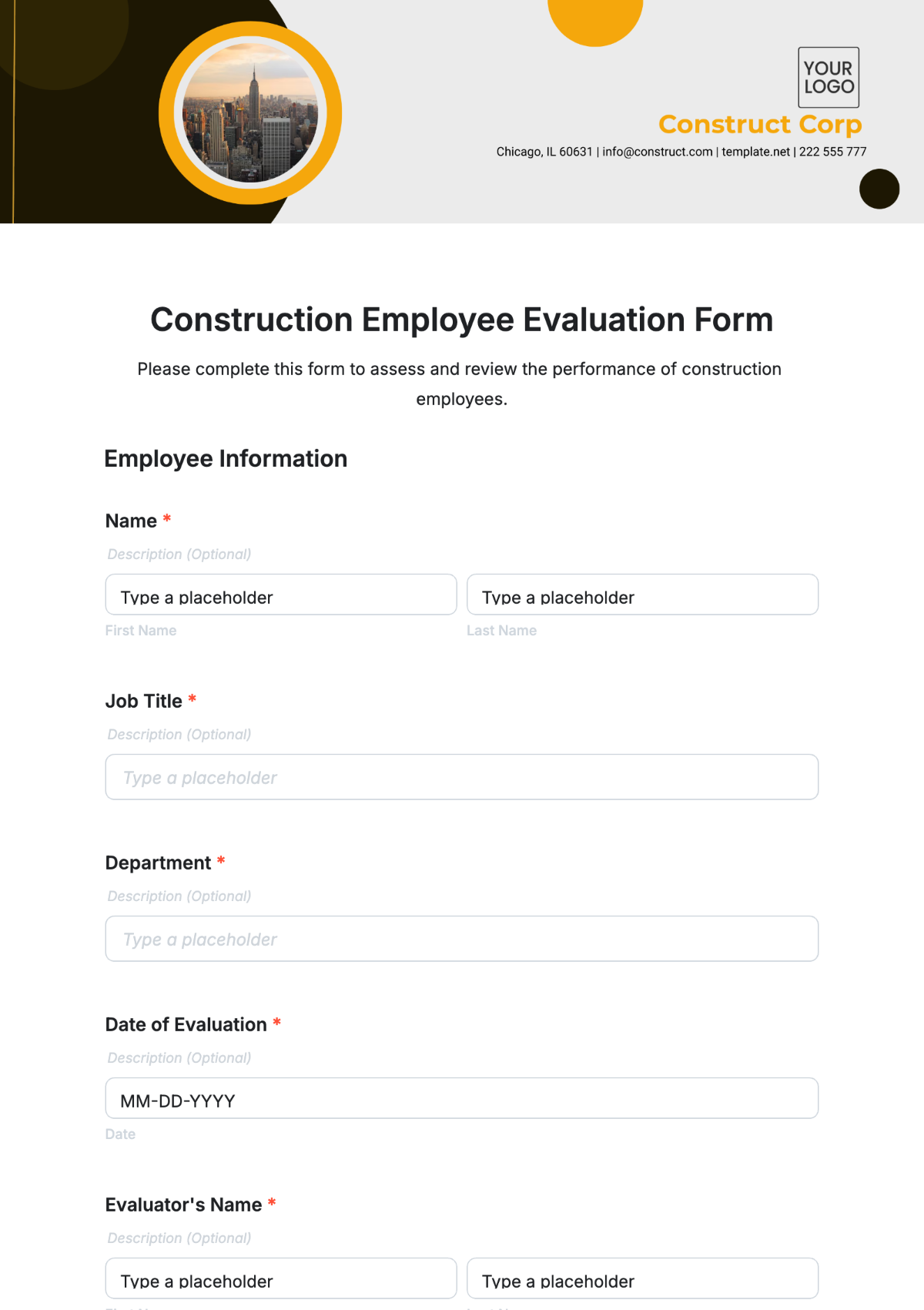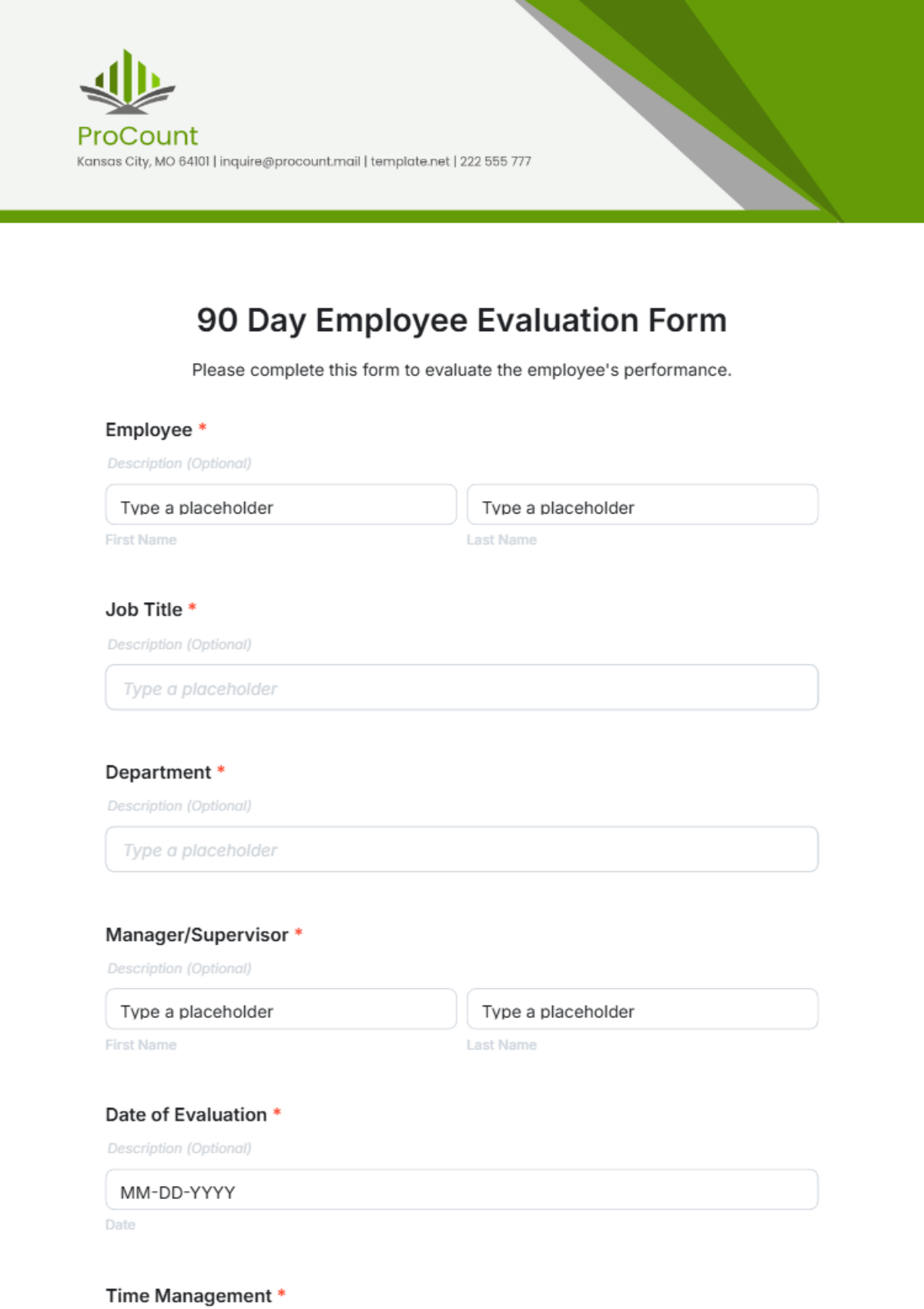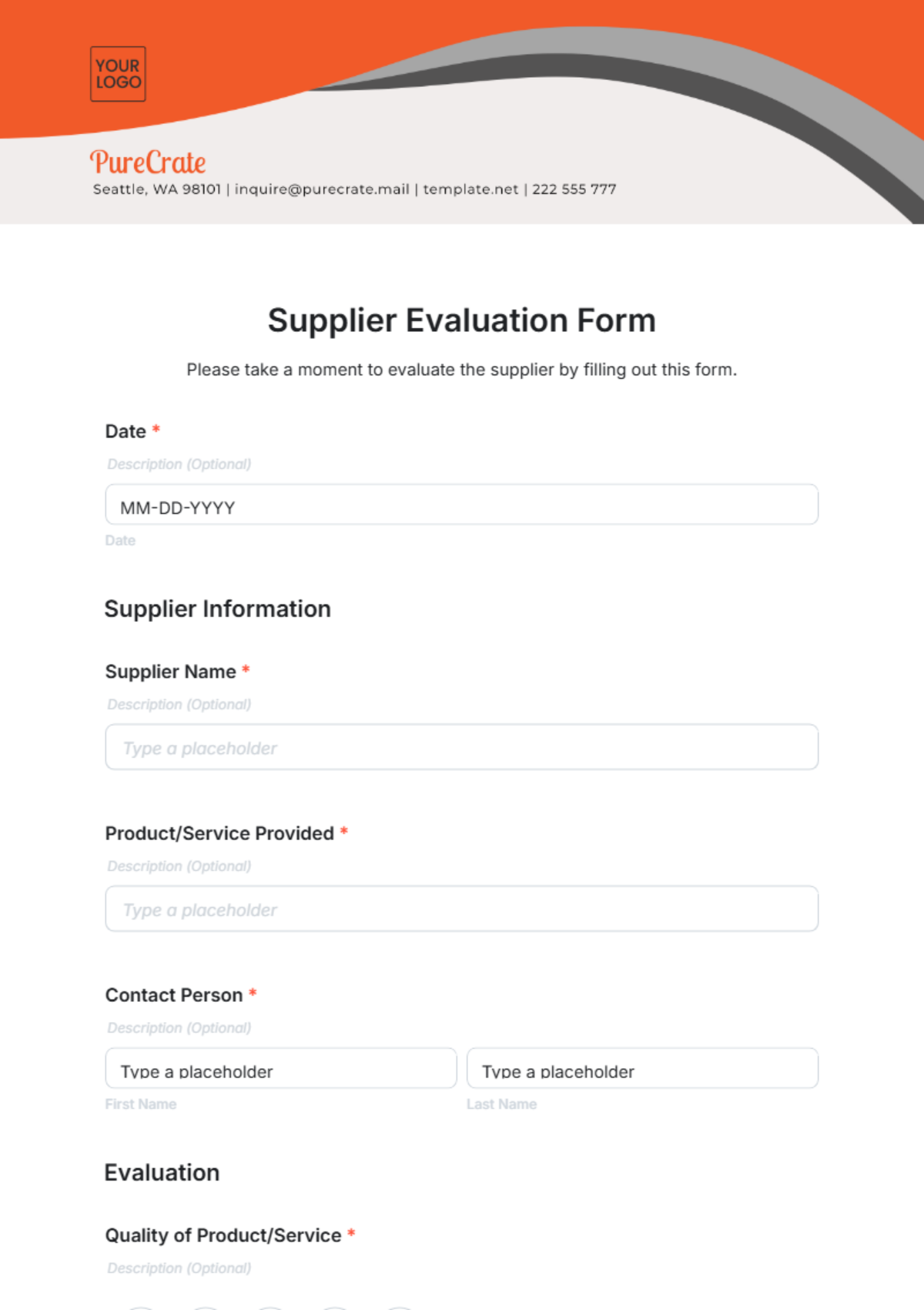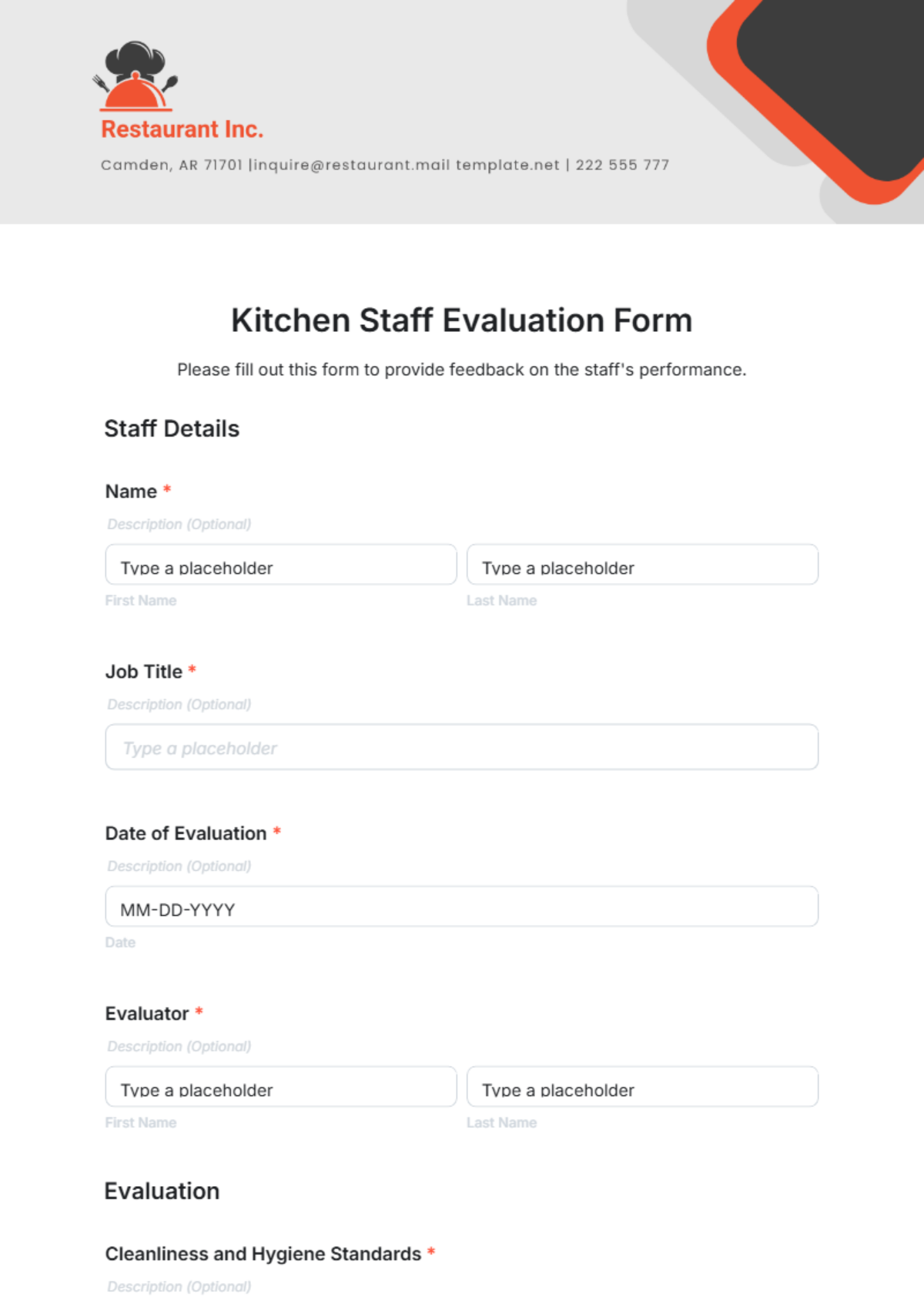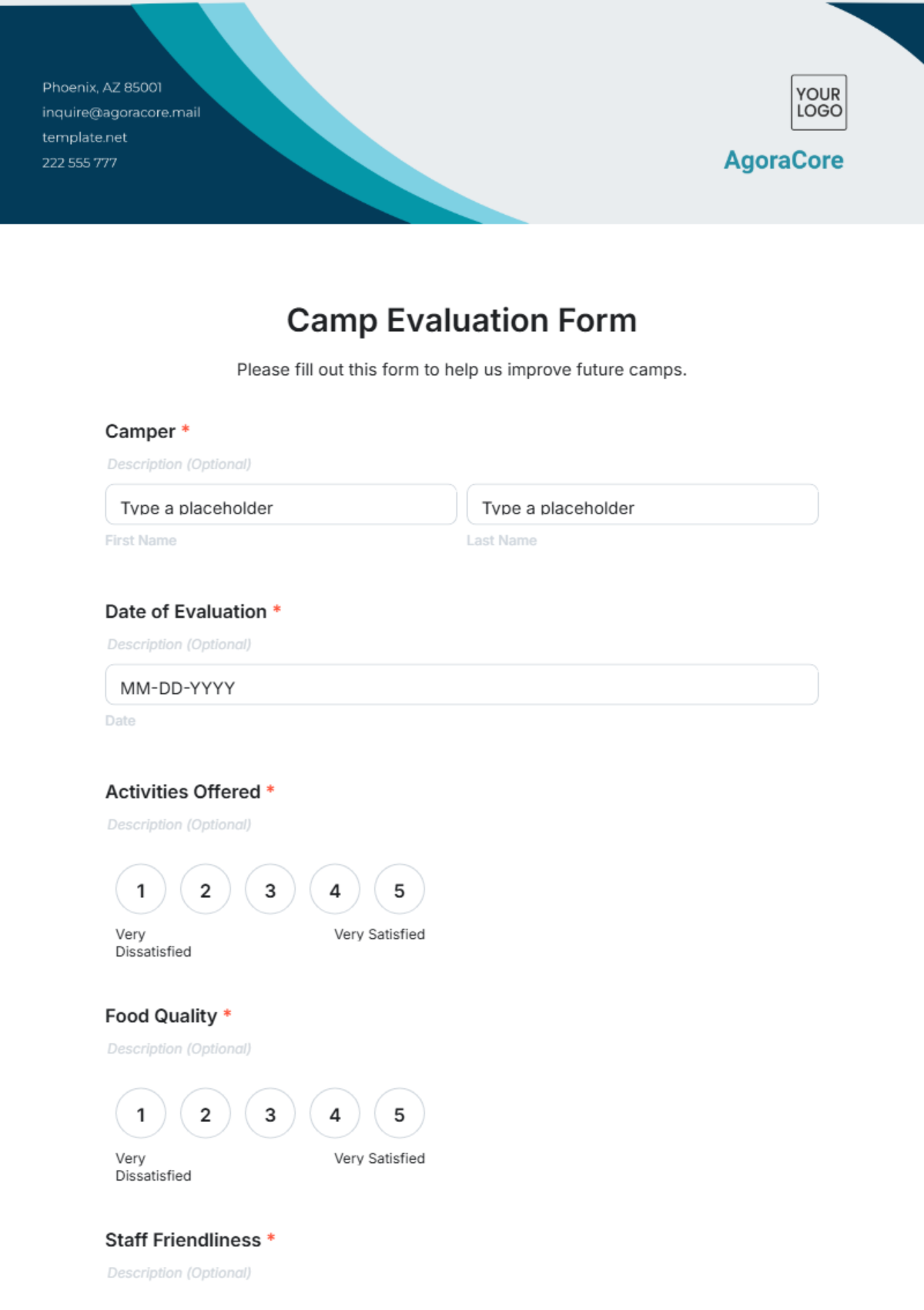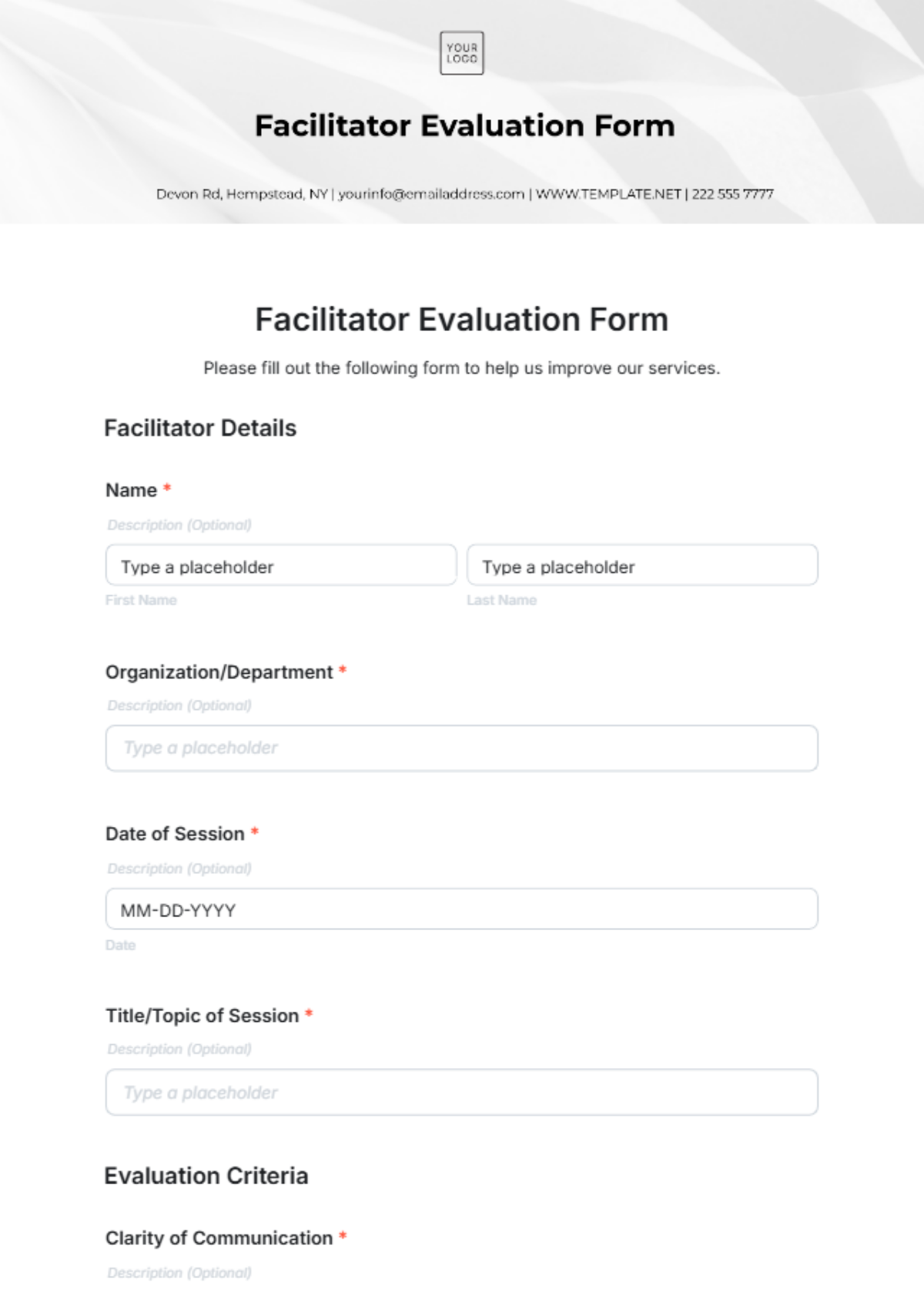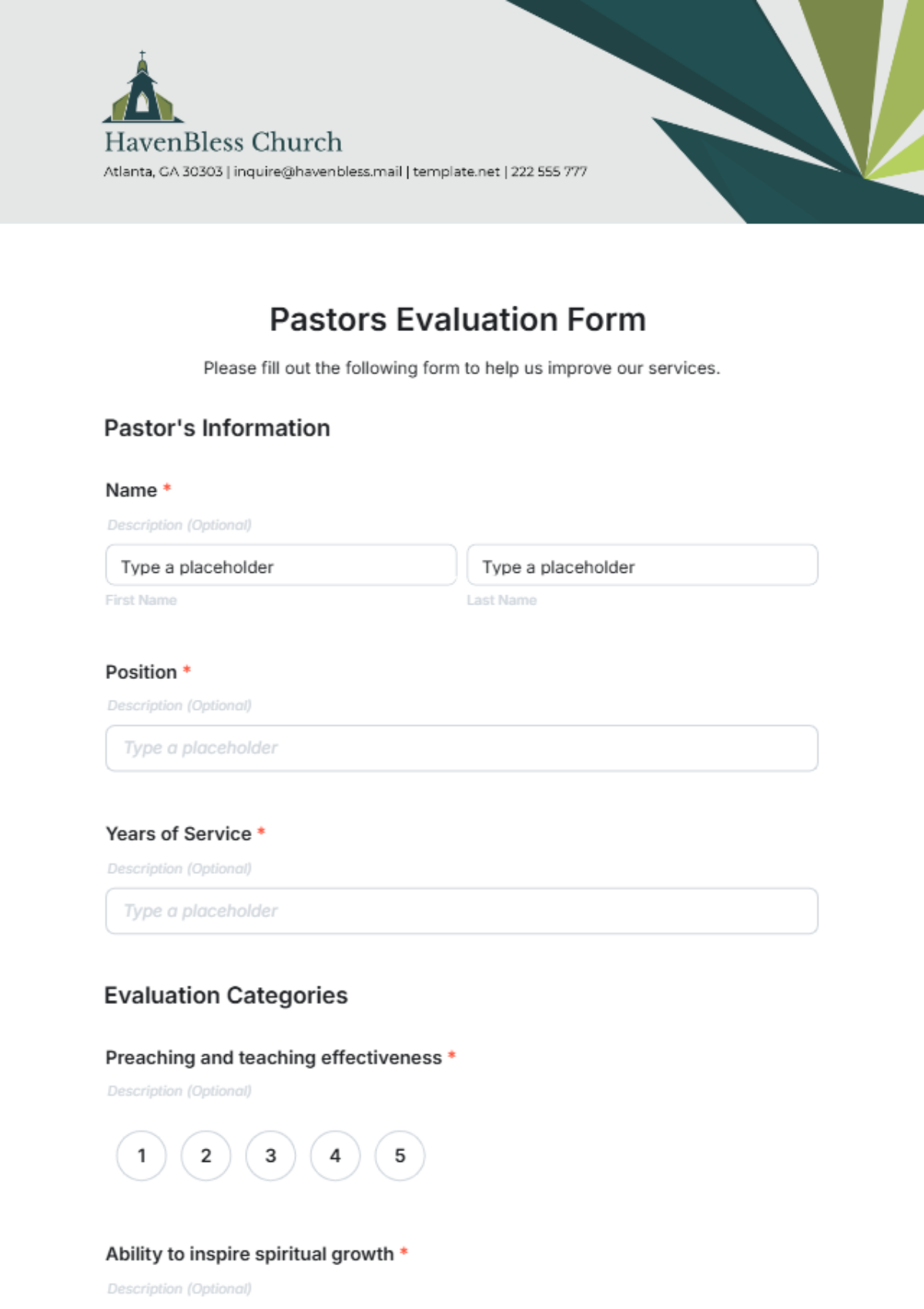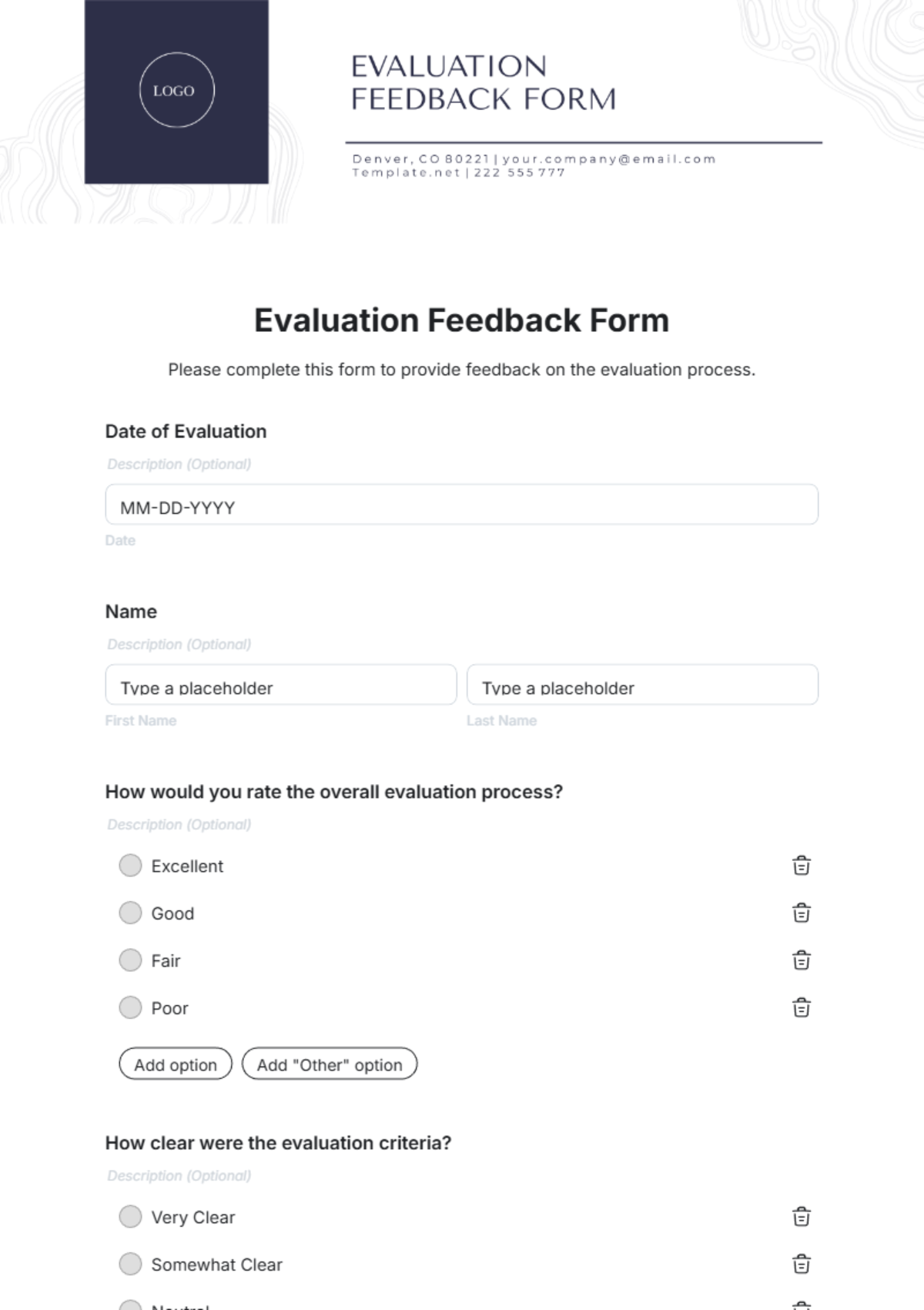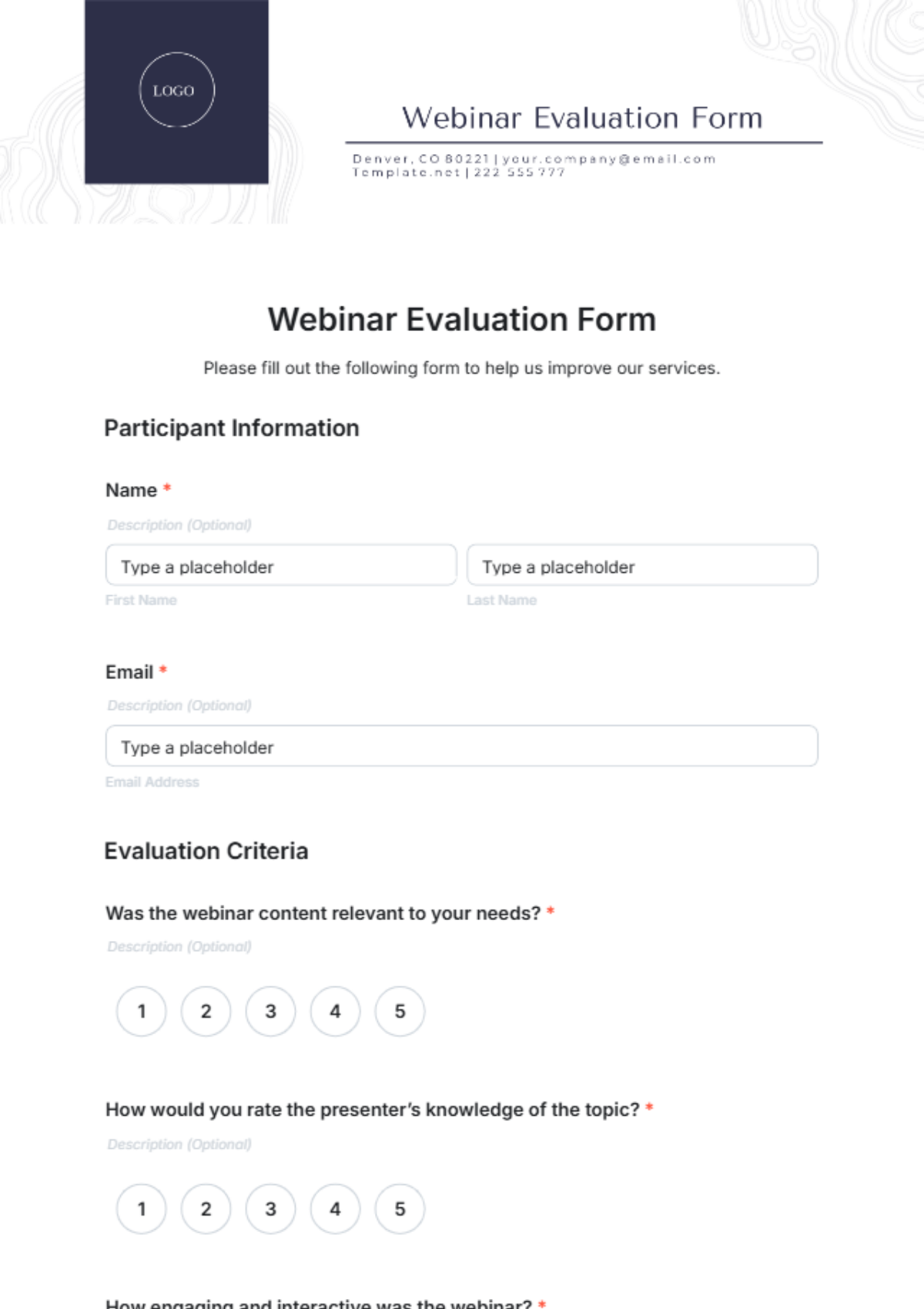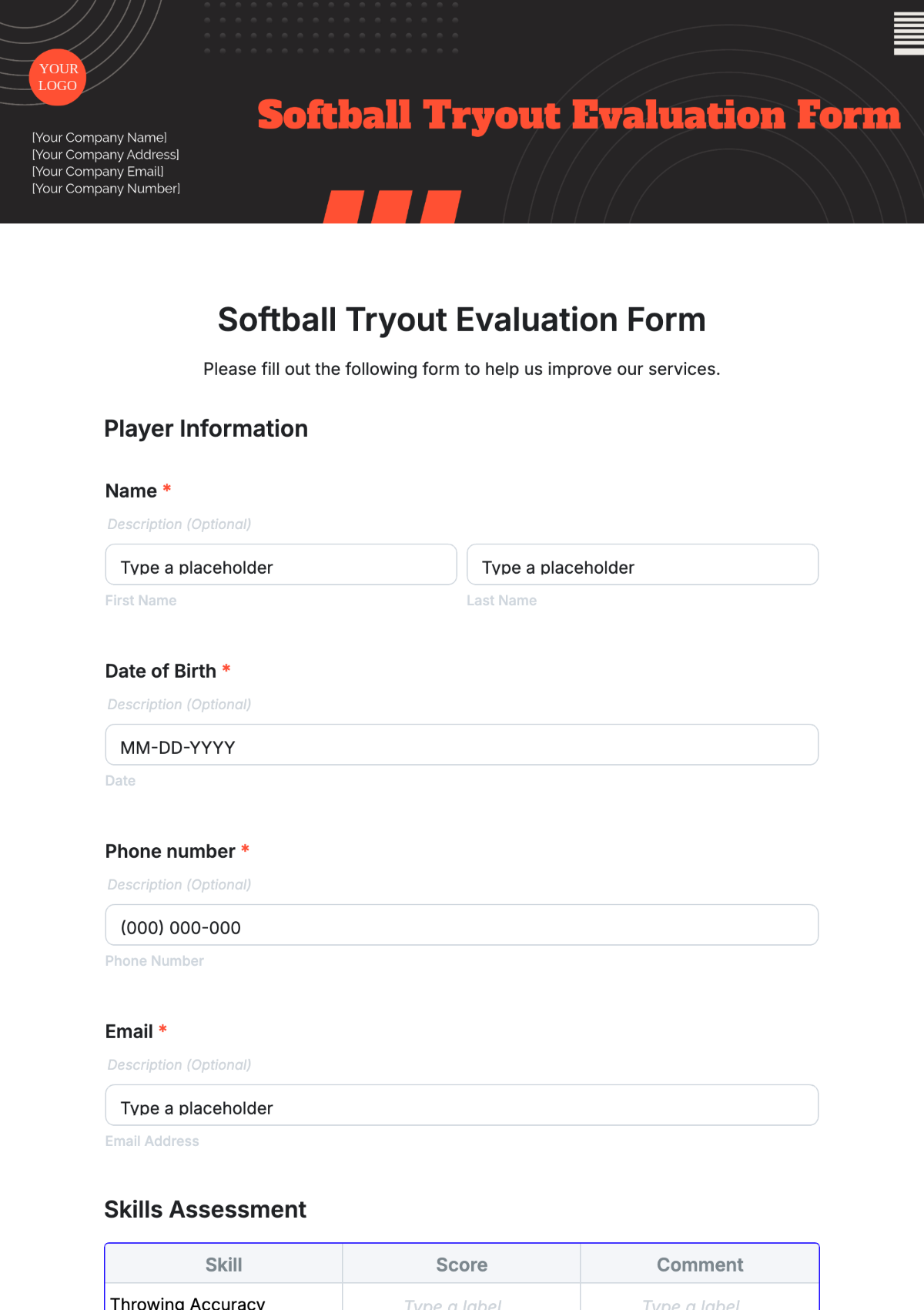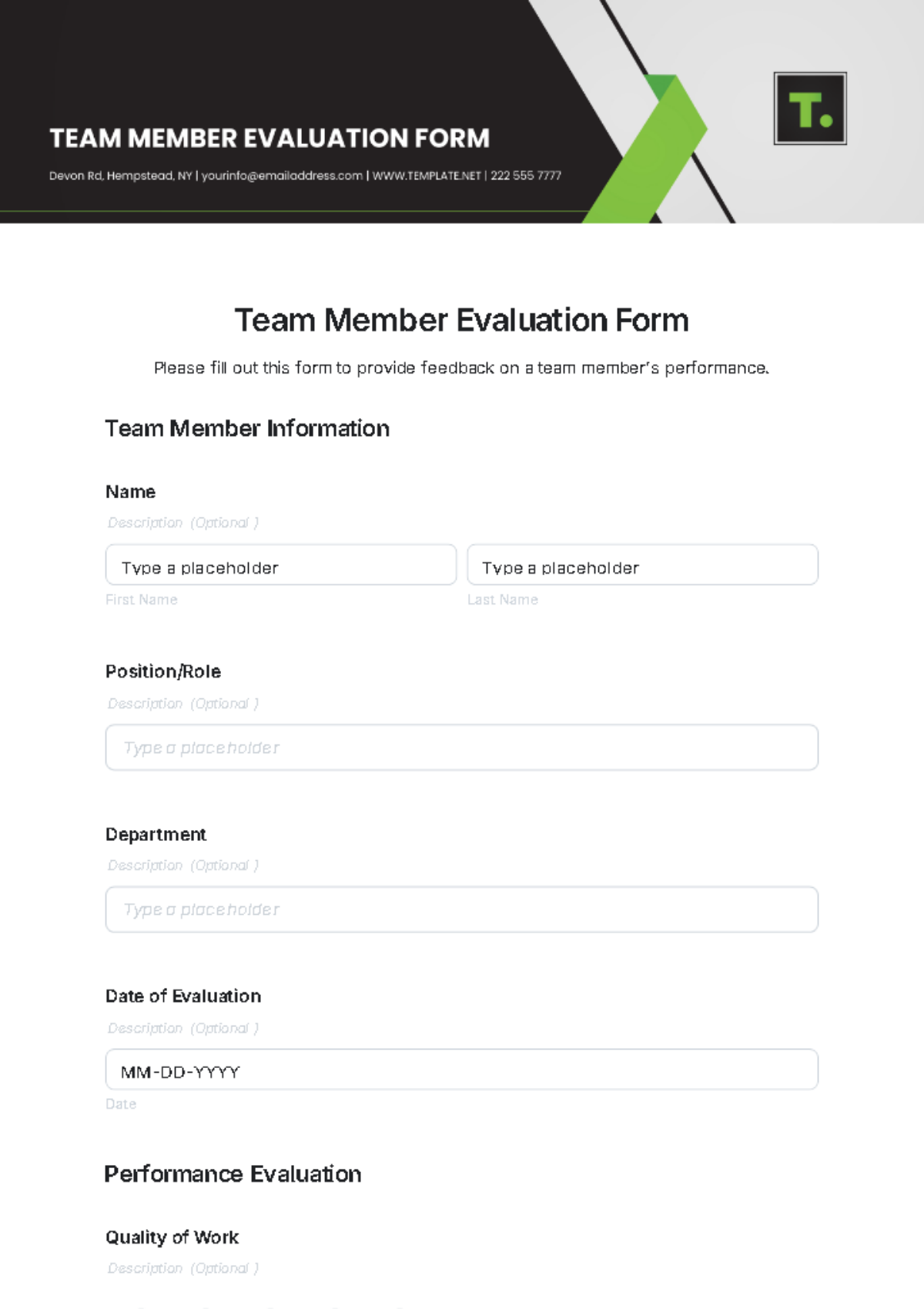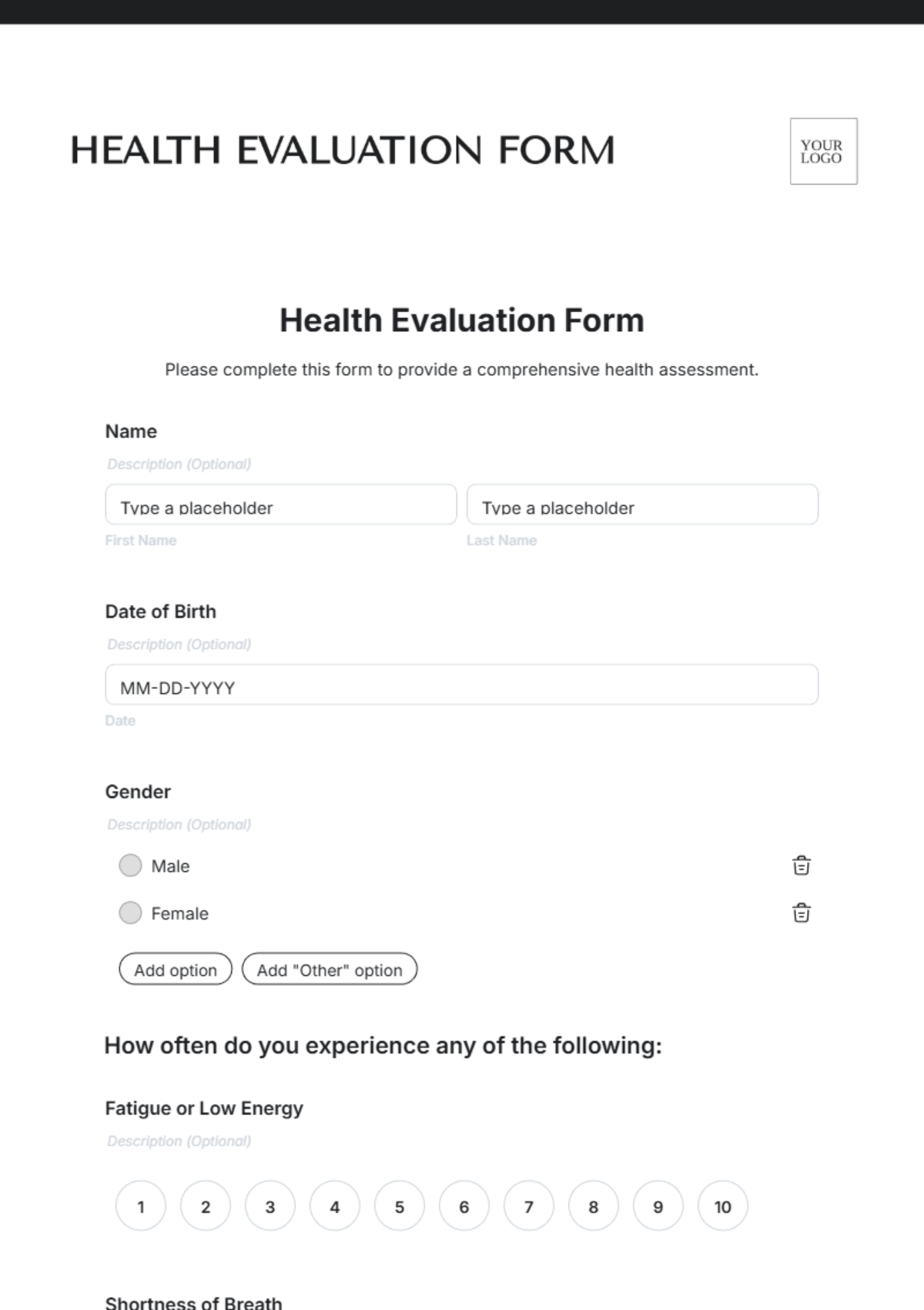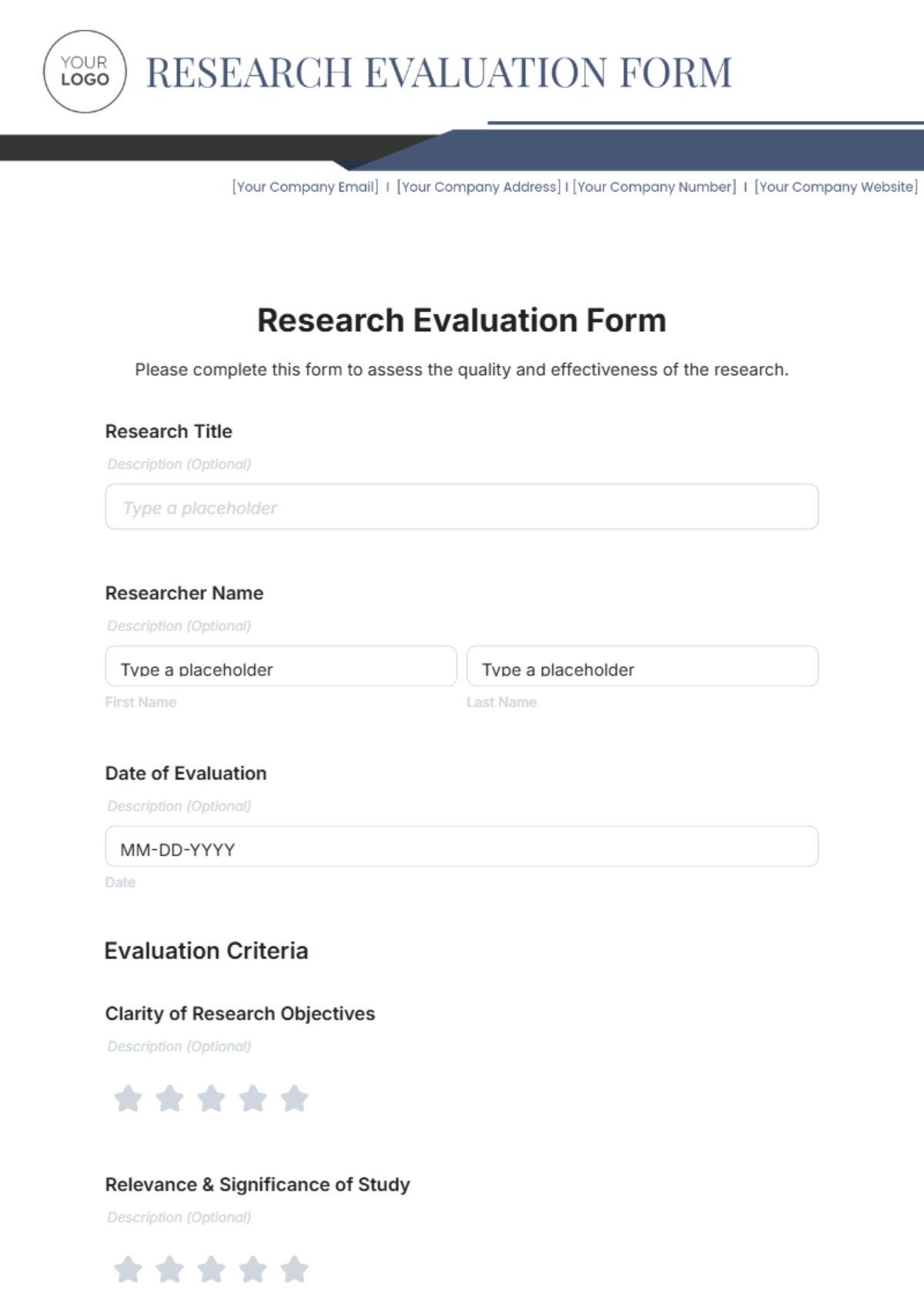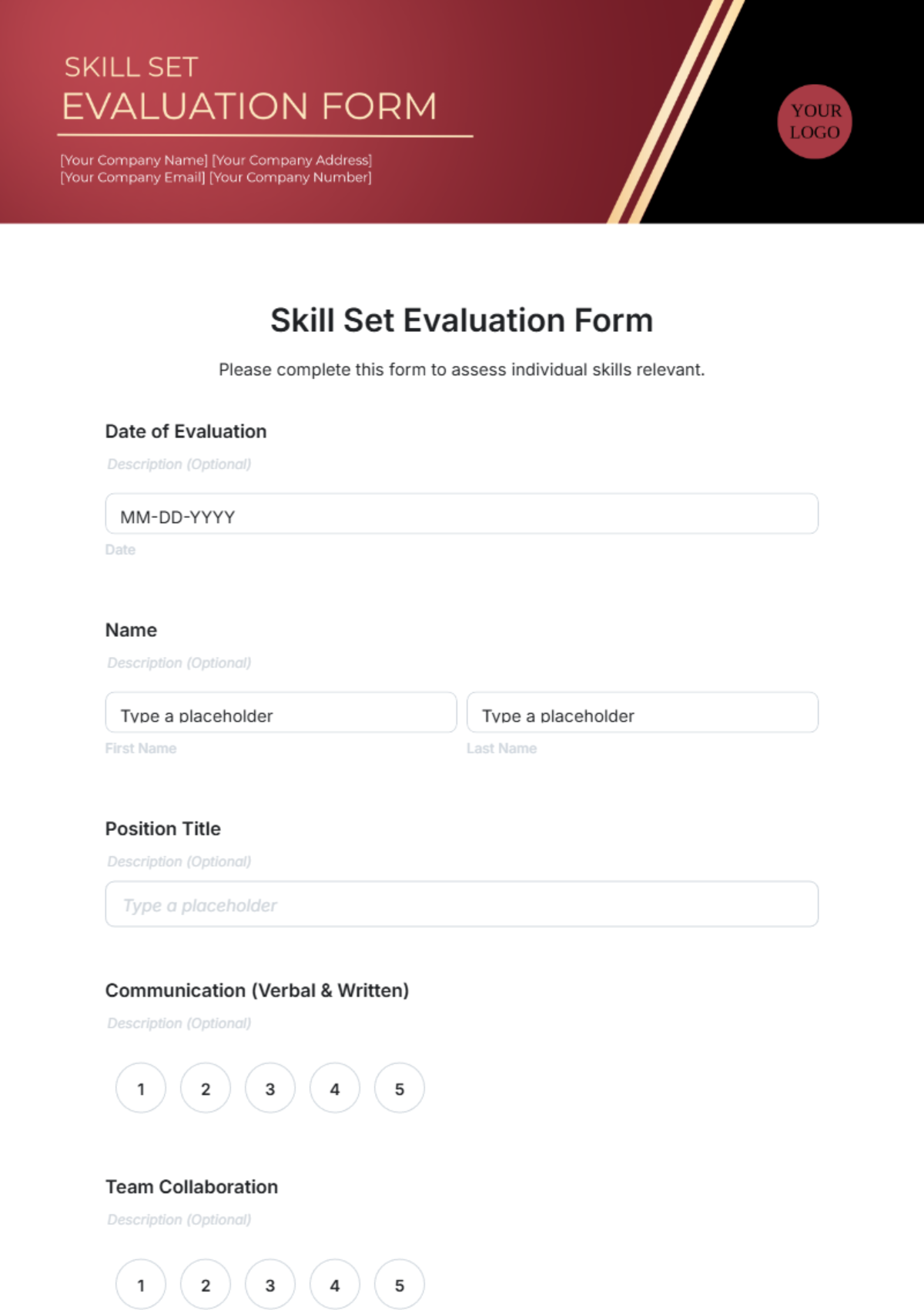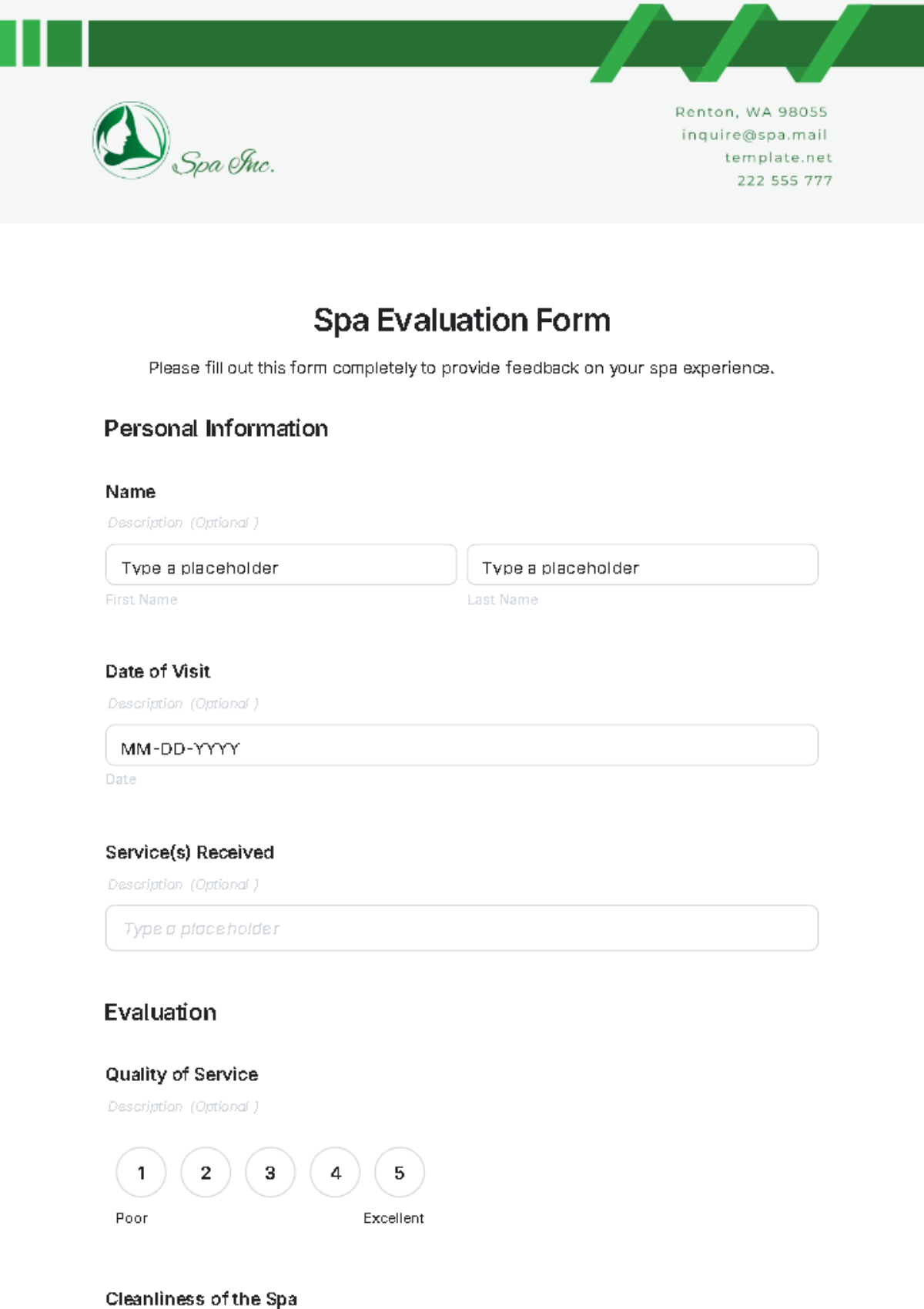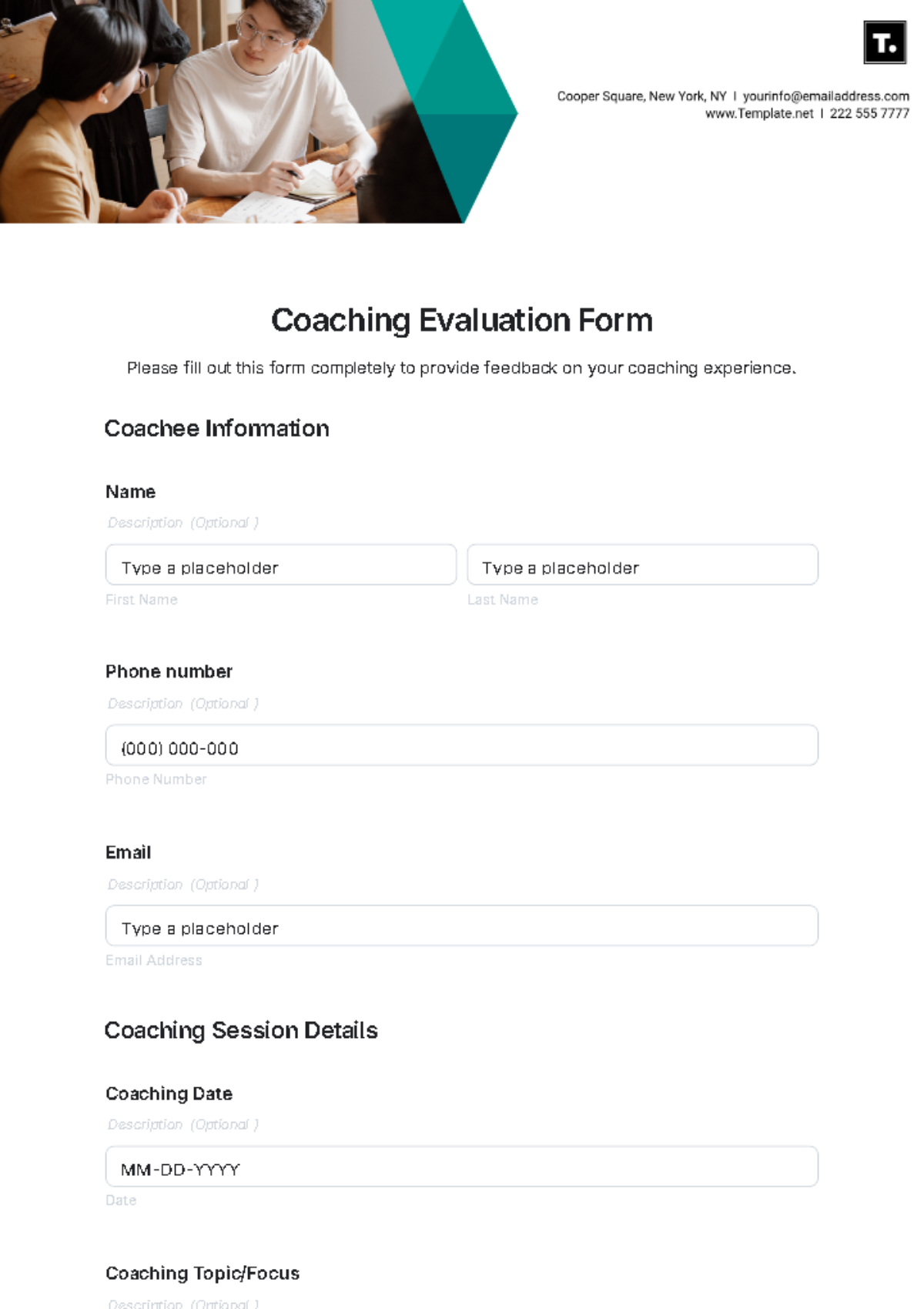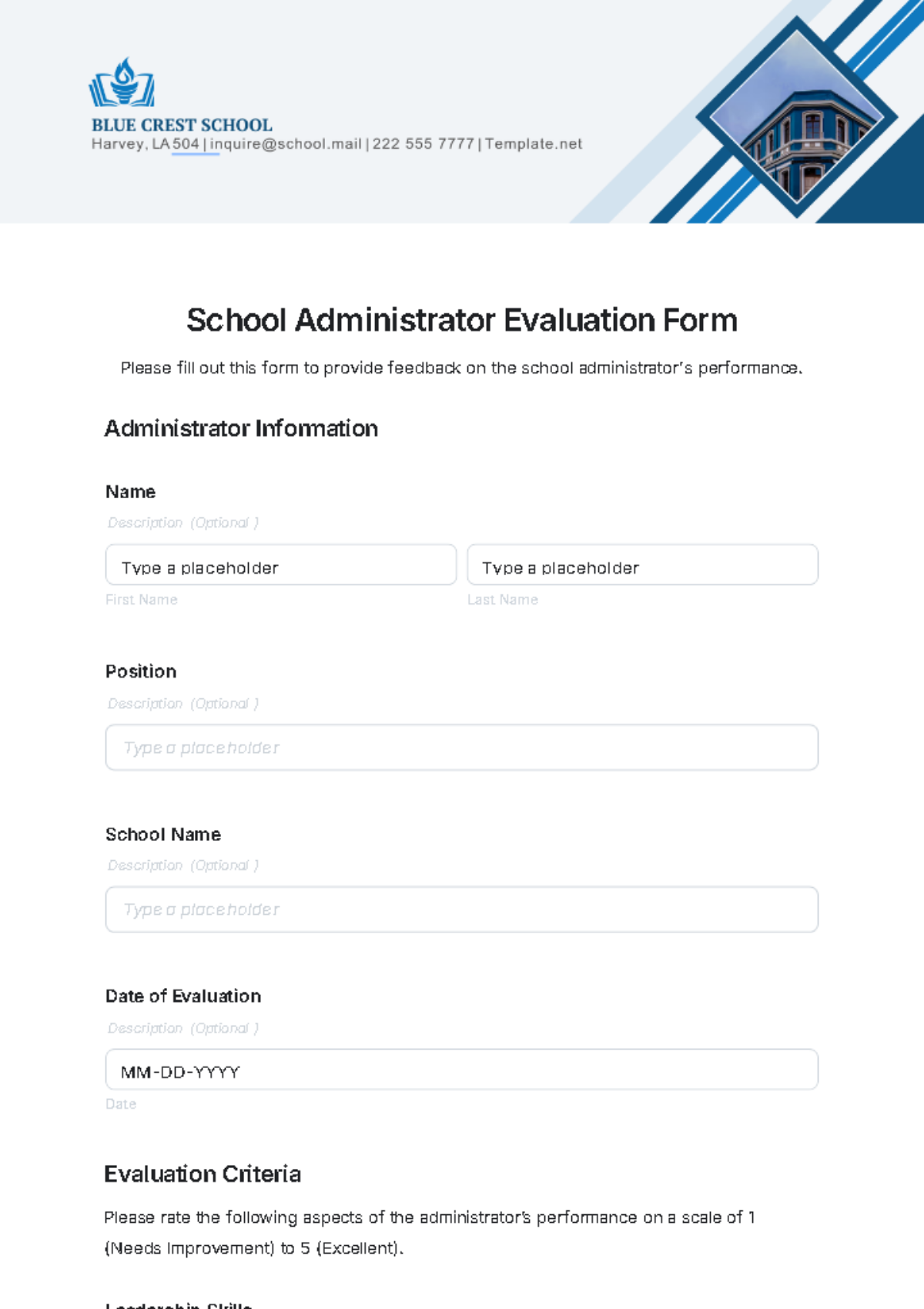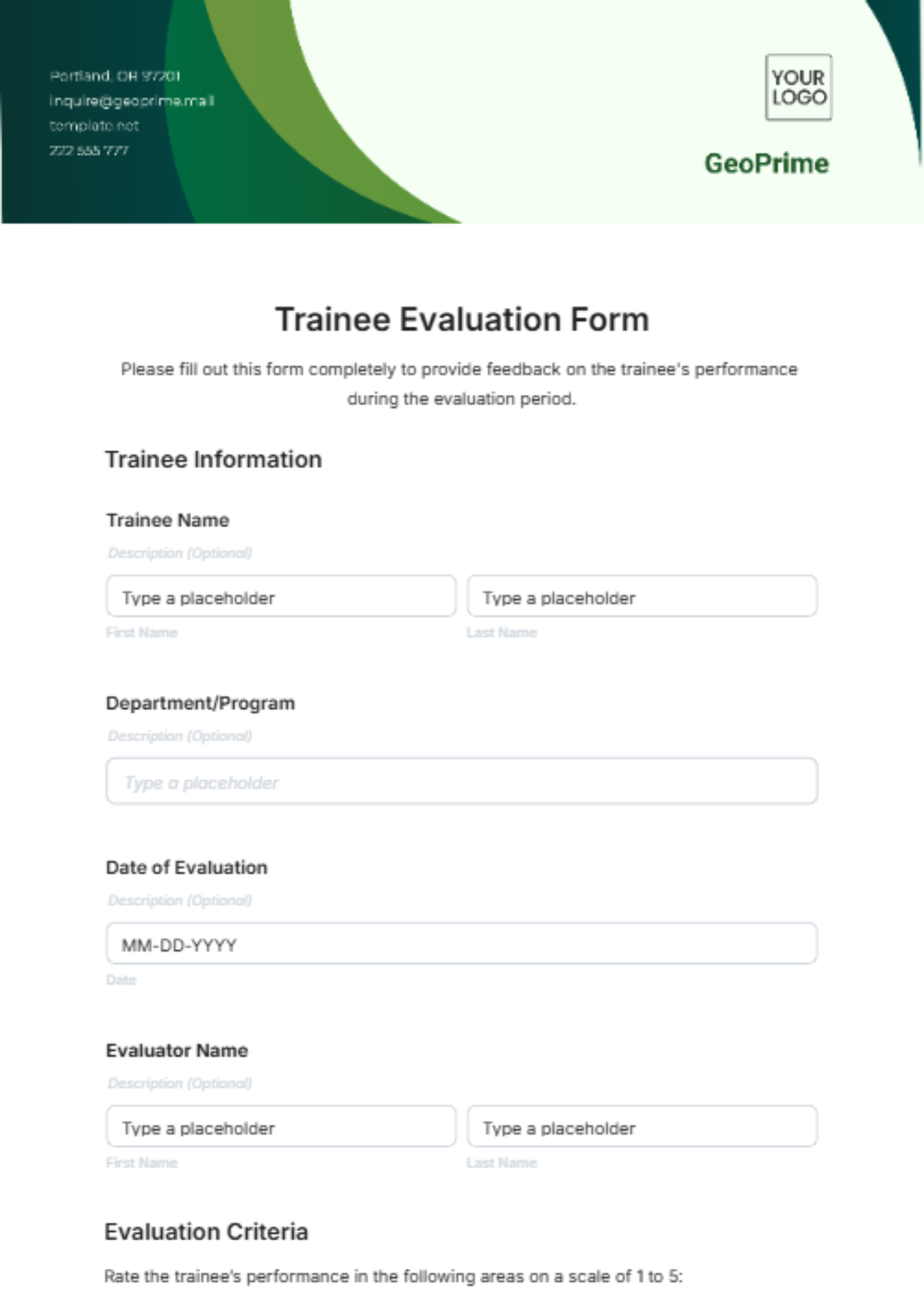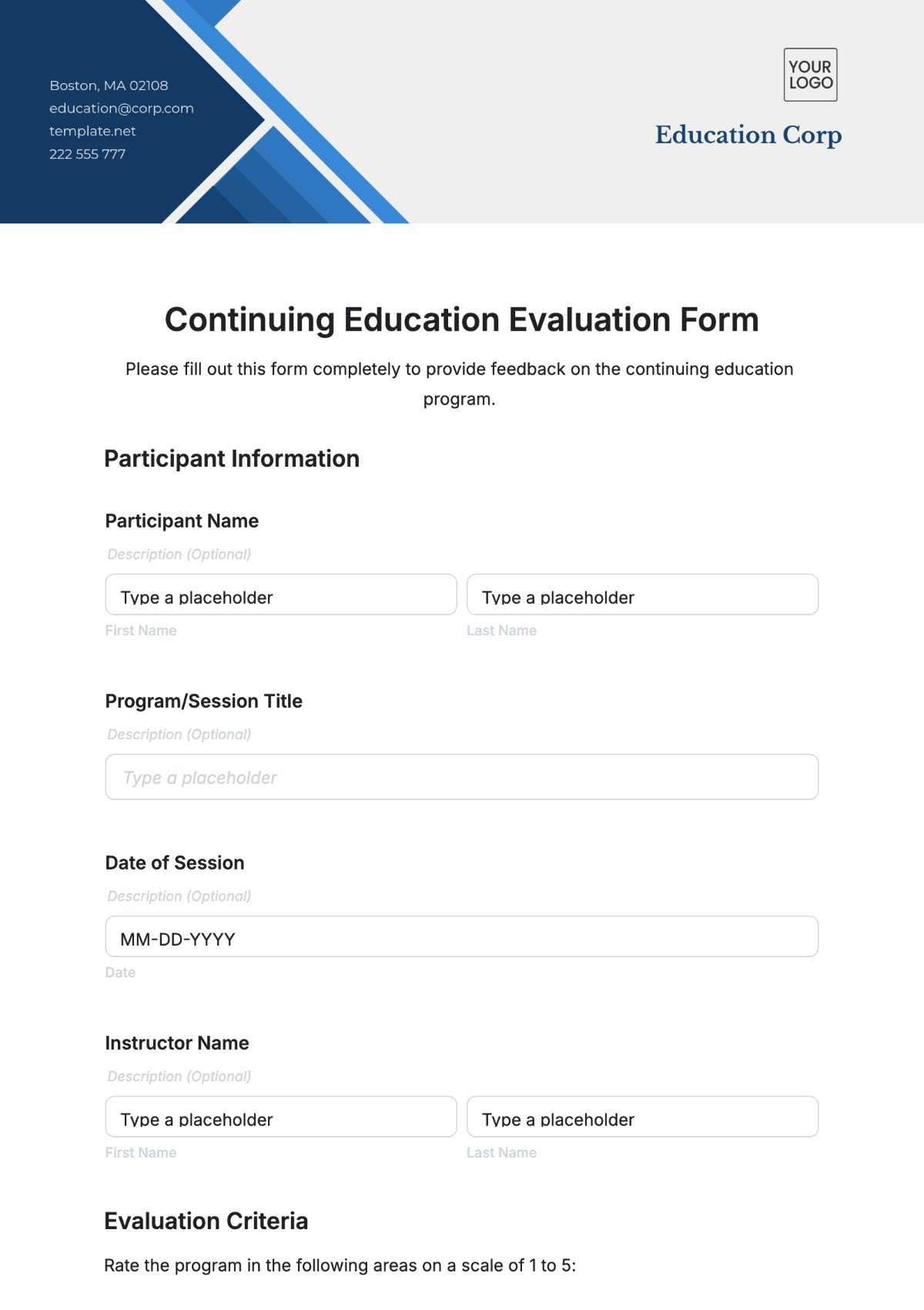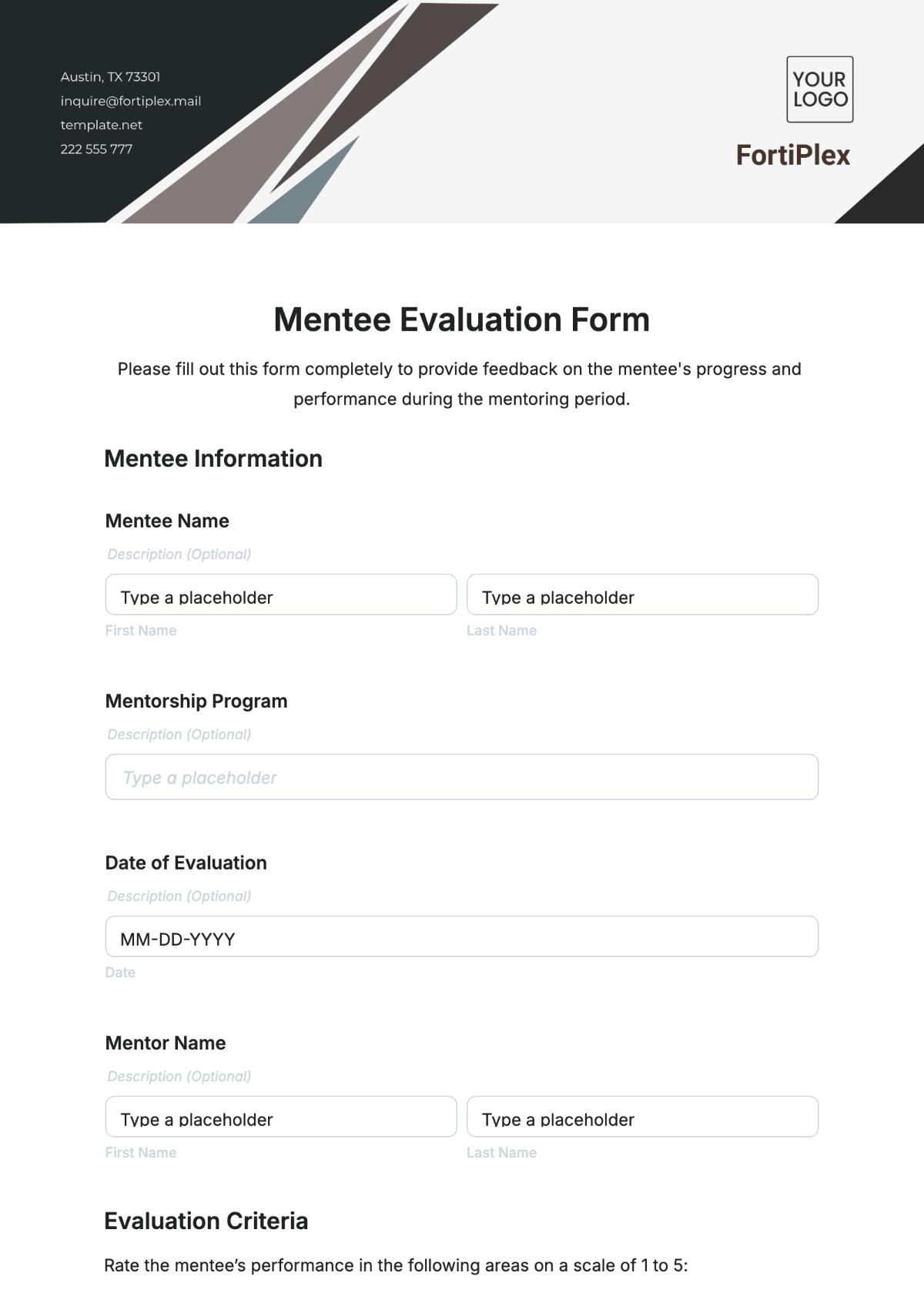Startup Employee Performance Evaluation Form
This comprehensive evaluation form is designed to provide a structured assessment of our team members' performance over the past year. By offering detailed feedback, we aim to recognize achievements, identify areas for growth, and set a clear path for future development. Your thoughtful participation in this process is invaluable to fostering a culture of excellence and continuous improvement within our organization.
1. Employee Information
This section captures essential information about the employee and the evaluation context. Accurate details ensure the evaluation is personalized and relevant, setting the stage for a meaningful review.
Employee Name | |
Job Title | |
Department | |
Evaluation Period | [Date] to [Date] |
Evaluator Name | [Your Name] |
Review Type |
|
Direct Supervisor |
2. Work Performance
Assessing work performance involves examining the quality, productivity, and consistency of the employee's output. This section seeks to highlight strengths and pinpoint areas where support or development is needed, encouraging a path toward excellence.
Aspect | Guidelines for Evaluation | Answer |
|---|---|---|
Quality of Work | Assess accuracy, thoroughness, and neatness. Provide specific examples. | [Employee Name] consistently produces high-quality work, demonstrating attention to detail in his campaign designs. His projects, notably the "Future Tech Expo" campaign, exceeded performance expectations by 20%, showcasing his exceptional ability to deliver polished and effective marketing materials. |
Productivity | Evaluate ability to meet or exceed productivity targets. Mention any completed projects or tasks. | |
Knowledge of Job | Rate understanding of job duties, procedures, and willingness to learn new skills. | |
Adaptability | Assess ability to adjust to new challenges, work under pressure, and manage change. | |
Attention to Detail | Evaluate the consistency in catching errors and maintaining high-quality work. | |
Dependability | Rate reliability in completing tasks and meeting deadlines. | |
Technical Skills | Assess proficiency with necessary tools, software, or equipment for the role. |
3. Communication Skills
Effective communication is foundational to success in any role. This section evaluates how well the employee expresses ideas, listens to others, and facilitates understanding, both within the team and in external interactions.
Aspect | Guidelines for Evaluation | Answer |
|---|---|---|
Listening Skills | How effectively does the employee listen and act on feedback and instructions? | [Employee Name] has shown remarkable listening skills, especially during team meetings and client briefings. He actively engages by asking insightful questions, which has significantly contributed to the refinement of our project strategies. |
Verbal Communication | Evaluate clarity, effectiveness, and professionalism in oral communication. | |
Written Communication | Assess ability to communicate clearly, concisely, and professionally in writing. | |
Presentation Skills | Evaluate effectiveness in presenting ideas and information to groups. | |
Responsiveness | Rate how quickly and effectively the employee responds to communication. | |
Persuasion and Influence | Assess ability to persuade or influence others effectively. | |
Interpersonal Skills | Evaluate ability to maintain positive work relationships and communicate respectfully. |
4. Teamwork and Collaboration
The ability to work well with others, contributing to a positive and productive team environment, is crucial. This section delves into the employee's teamwork skills, including collaboration, conflict resolution, and support for diversity and inclusion.
Aspect | Guidelines for Evaluation | Answer |
|---|---|---|
Cooperation with Colleagues | How well does the employee work with others, share ideas, and contribute to team goals? | [Employee Name] is a team player who actively contributes ideas and supports his colleagues in collaborative projects. His willingness to share knowledge and resources has enhanced team productivity, particularly in cross-departmental initiatives like the website redesign. |
Conflict Resolution | Evaluate ability to handle conflicts constructively without disrupting team harmony. | |
Support of Diversity and Inclusion | Assess contributions to creating an inclusive environment that respects diversity. | |
Leadership and Influence | For those in or aspiring to leadership roles, evaluate leadership qualities and ability to inspire others. | |
Building Team Spirit | Rate efforts to foster team unity, morale, and cooperation. | |
Mentorship and Coaching | Evaluate willingness and ability to mentor or coach colleagues for their development. | |
Collaboration Across Departments | Assess ability to work effectively with members from different departments or teams. |
5. Initiative and Problem-Solving
A proactive approach and the ability to solve problems creatively are highly valued traits. This section focuses on the employee's initiative, innovation, and decision-making capabilities, showcasing their impact on the organization.
Aspect | Guidelines for Evaluation | Answer |
|---|---|---|
Proactivity | Provide examples of how the employee has taken initiative beyond the scope of their job. | [Employee Name] demonstrated exceptional proactivity by initiating a social media analytics project that provided deep insights into our audience's behavior. This initiative not only improved our campaign targeting but also increased engagement rates by 30%. |
Creativity and Innovation | Evaluate ability to propose and implement innovative solutions. | |
Decision Making | Assess decision-making skills, including analysis, judgment, and execution under pressure. | |
Analytical Thinking | Rate the ability to analyze information, identify problems, and develop solutions. | |
Handling Pressure and Stress | Assess resilience and ability to maintain composure under stress. | |
Problem Solving | Evaluate effectiveness in identifying, analyzing, and solving work-related problems. | |
Strategic Thinking | Assess ability to contribute to long-term planning and strategy. |
6. Additional Comments
Provide any further observations or feedback that does not fit into the categories above. This might include insights about the employee's professional development, potential, and areas for improvement.
7. Evaluation Summary
The evaluation summary provides an overall performance rating, capturing the essence of the employee's contributions over the evaluation period. It also outlines recommendations for professional development and sets goals for the next evaluation period, ensuring continued growth and achievement.
Overall Performance Rating |
|
|---|---|
Recommendations for Professional Development | [Employee Name] could benefit from advanced analytics training to further enhance his data interpretation skills, supporting his innovative initiatives with solid insights. |
Goals for Next Evaluation Period |
8. Acknowledgment
The acknowledgment section ensures that both the evaluator and the employee affirm the review has been conducted fairly and thoroughly, acknowledging the feedback provided and the goals set for future development. This mutual recognition is key to the evaluation's effectiveness and the employee's engagement with their growth plan.
Evaluator's Signature | [Your Signature] |
|---|---|
Date | [MM-DD-YYYY] |
Employee's Signature | |
Date |
